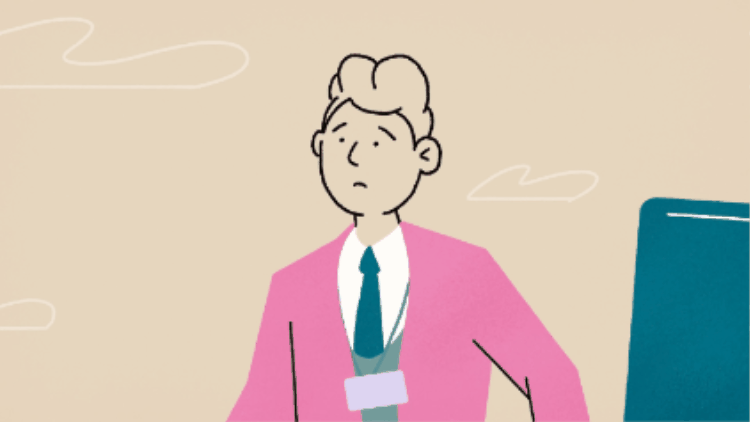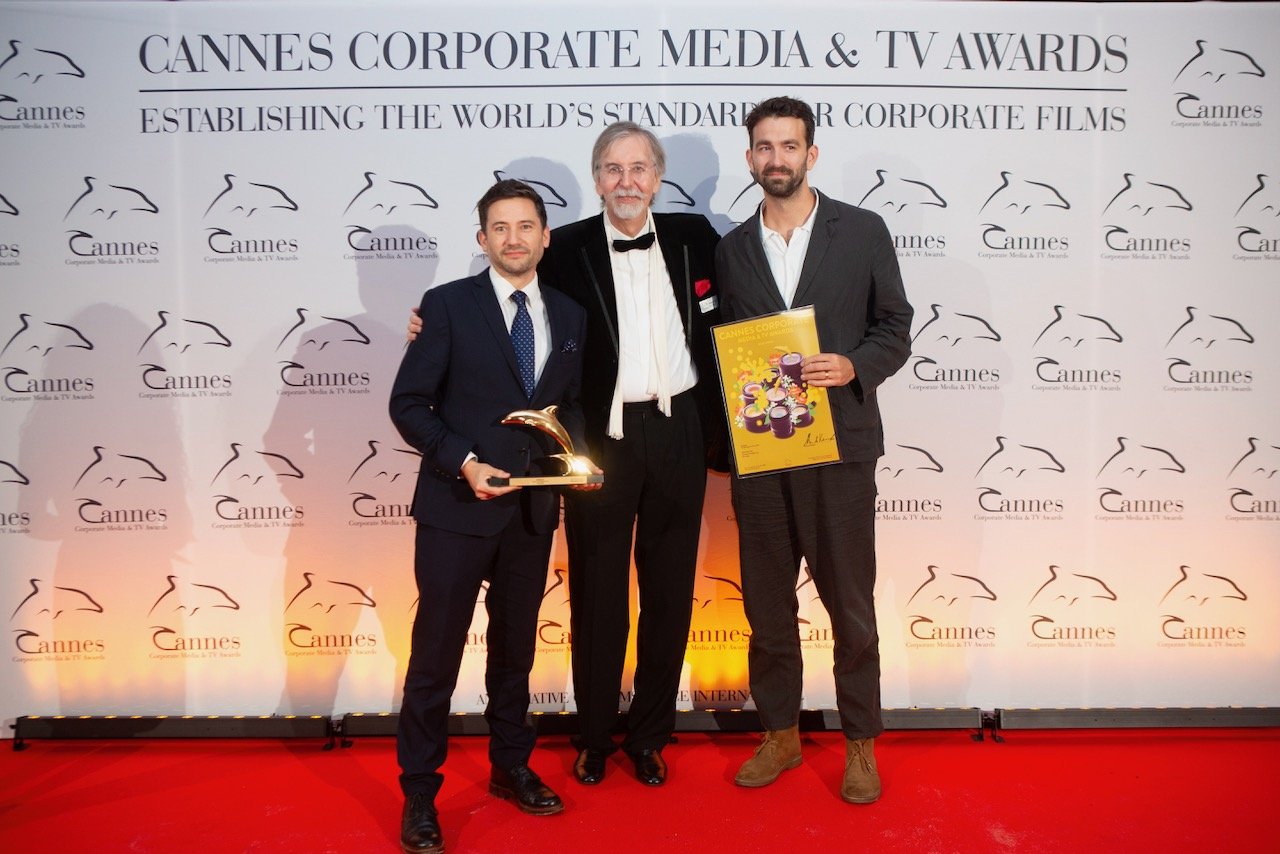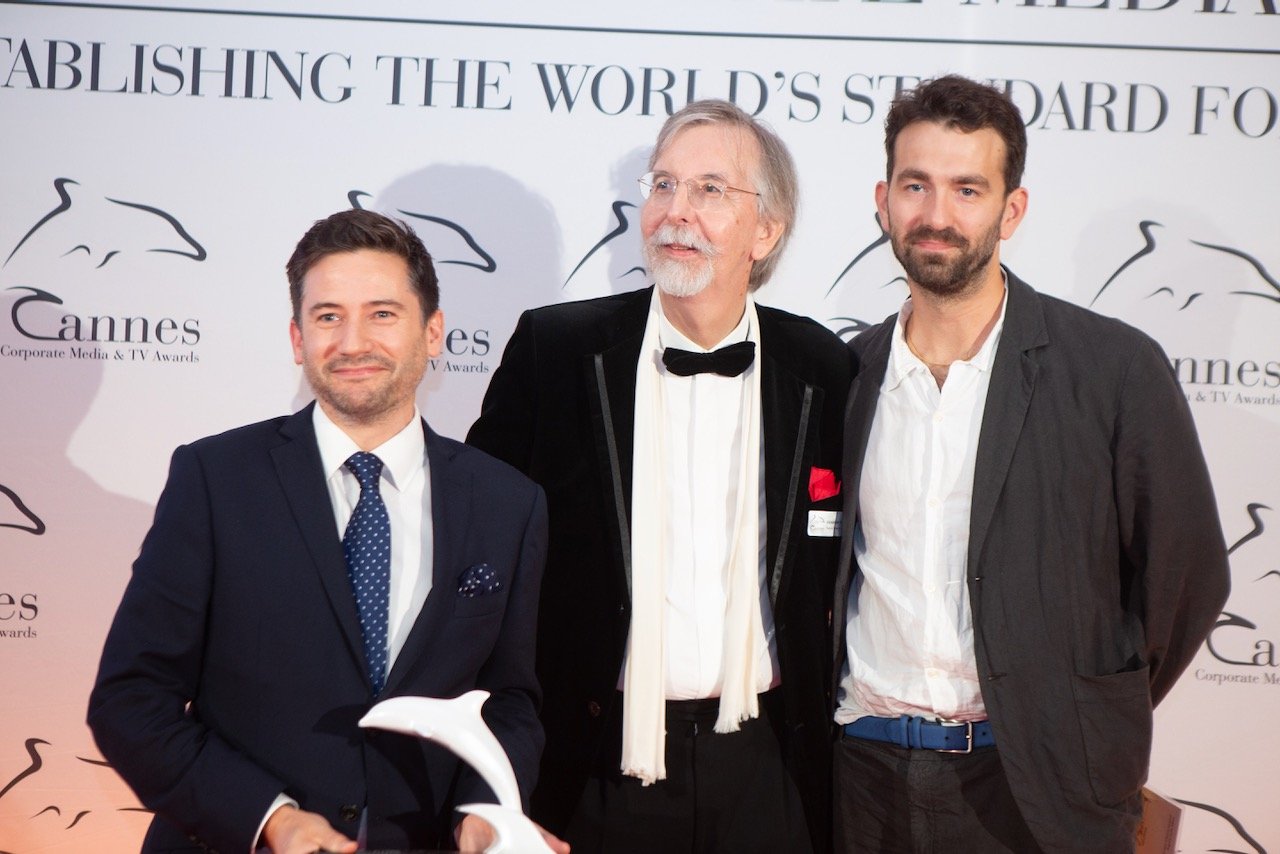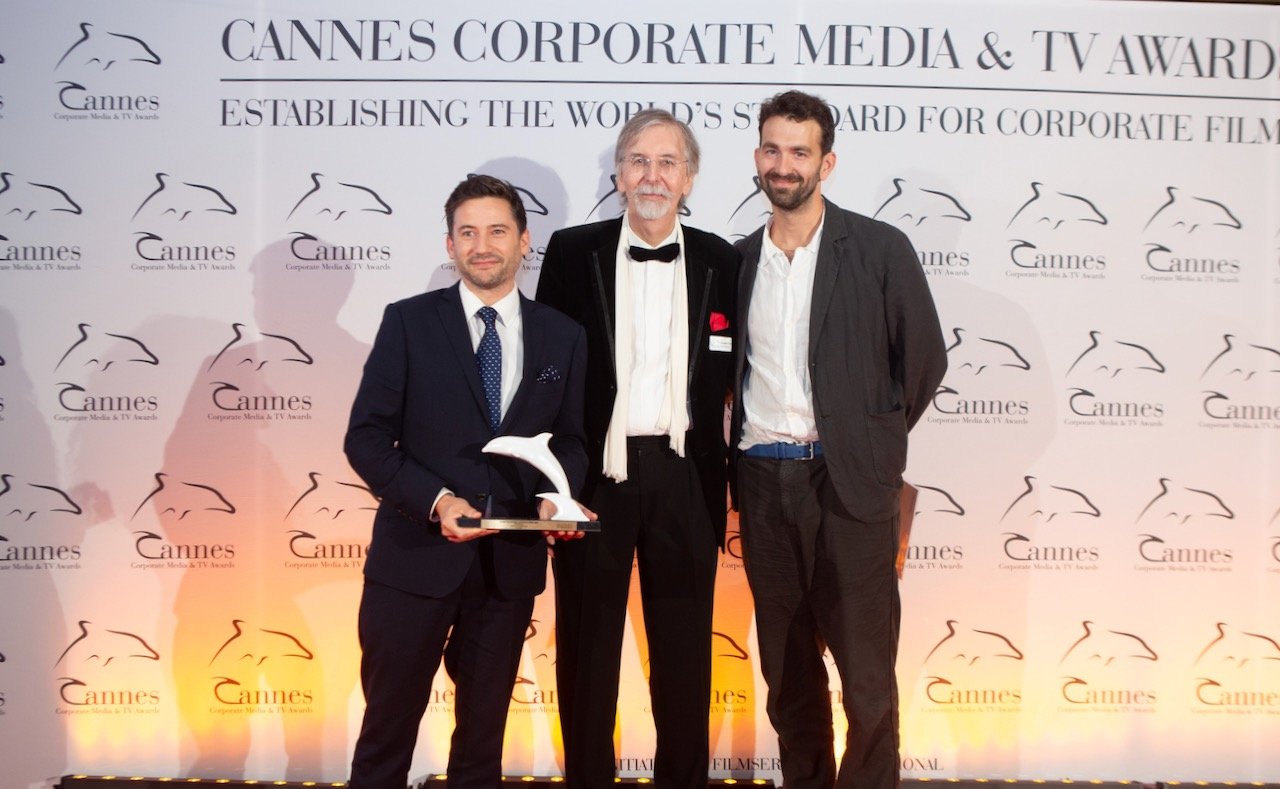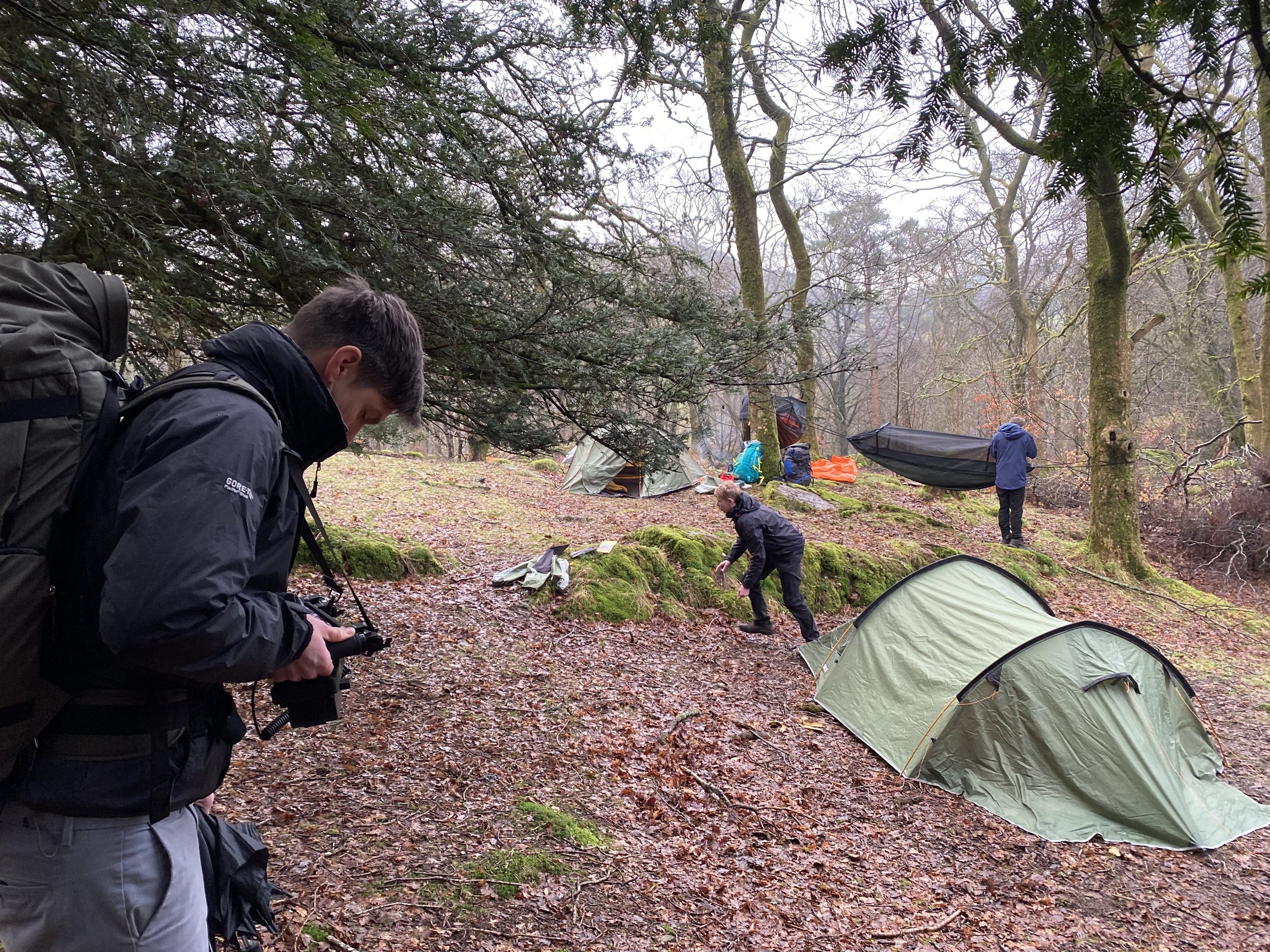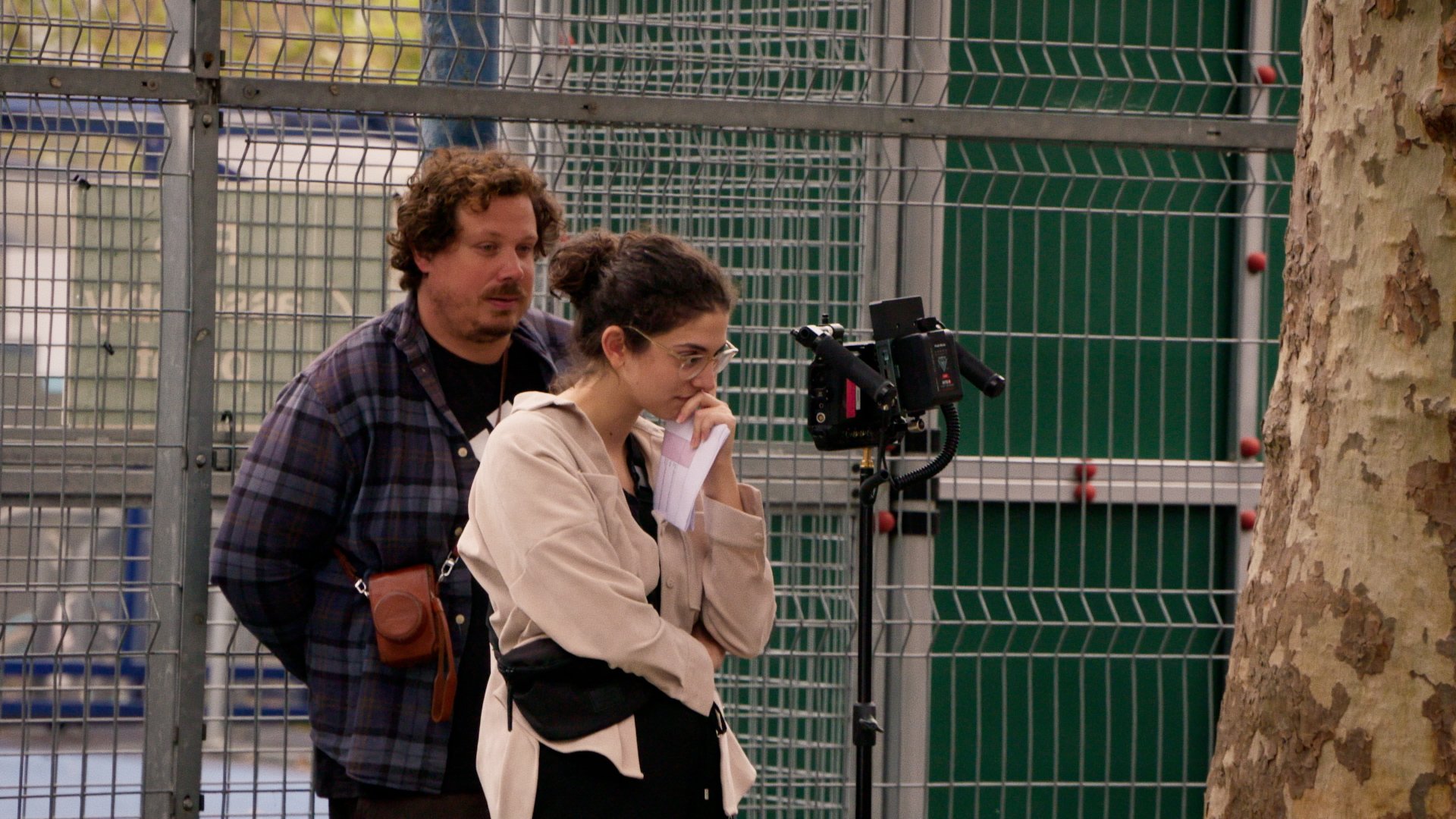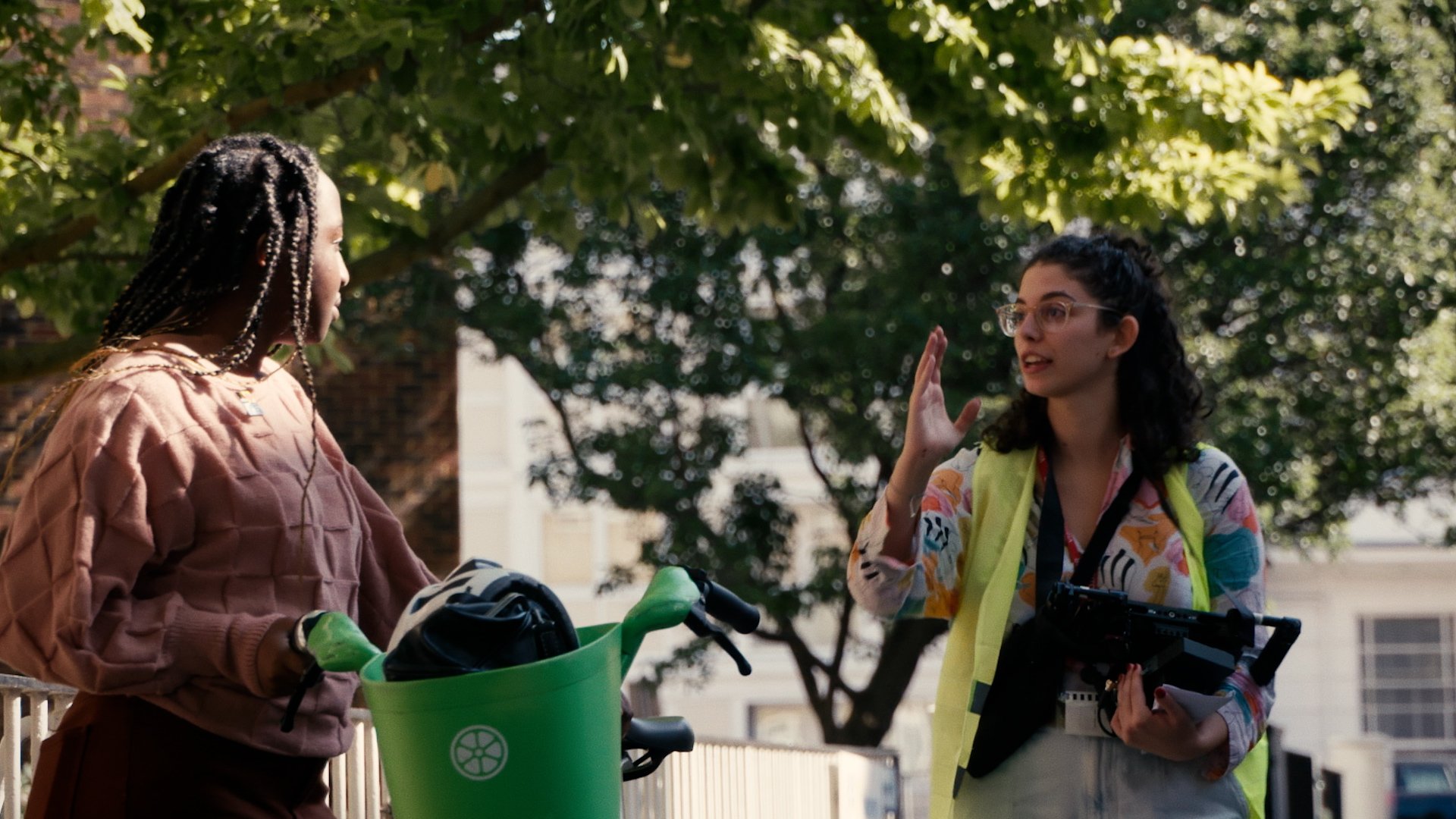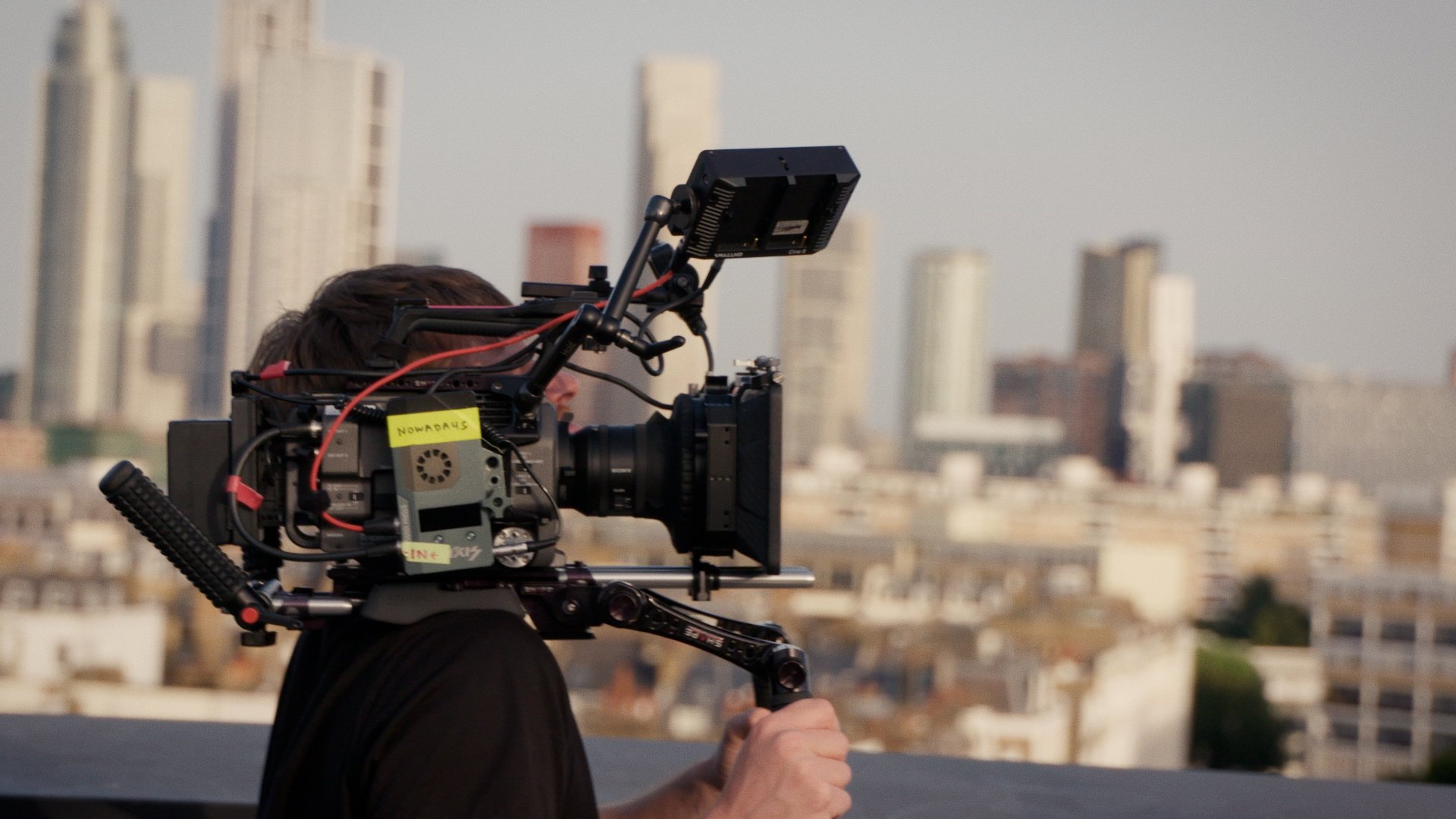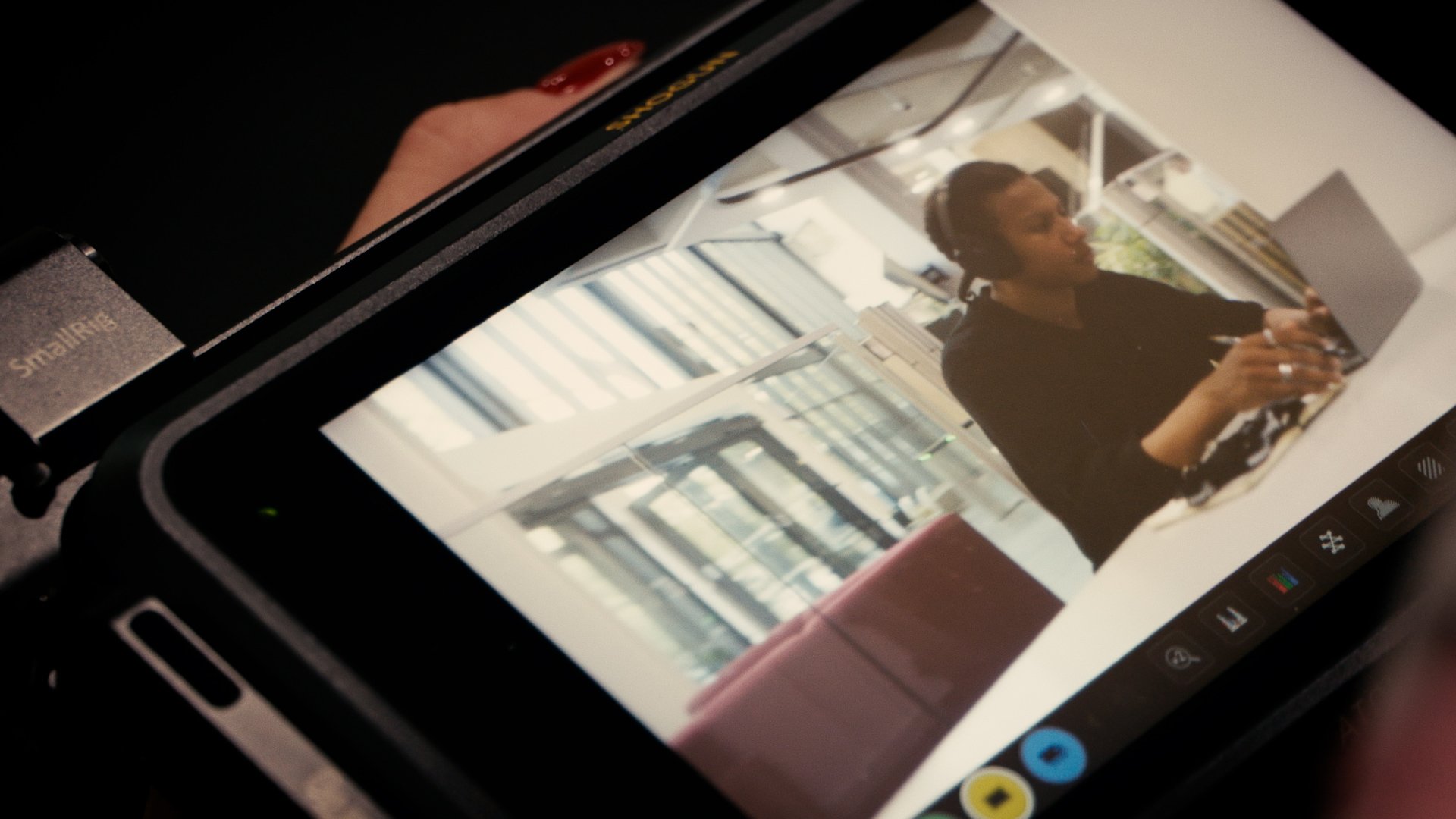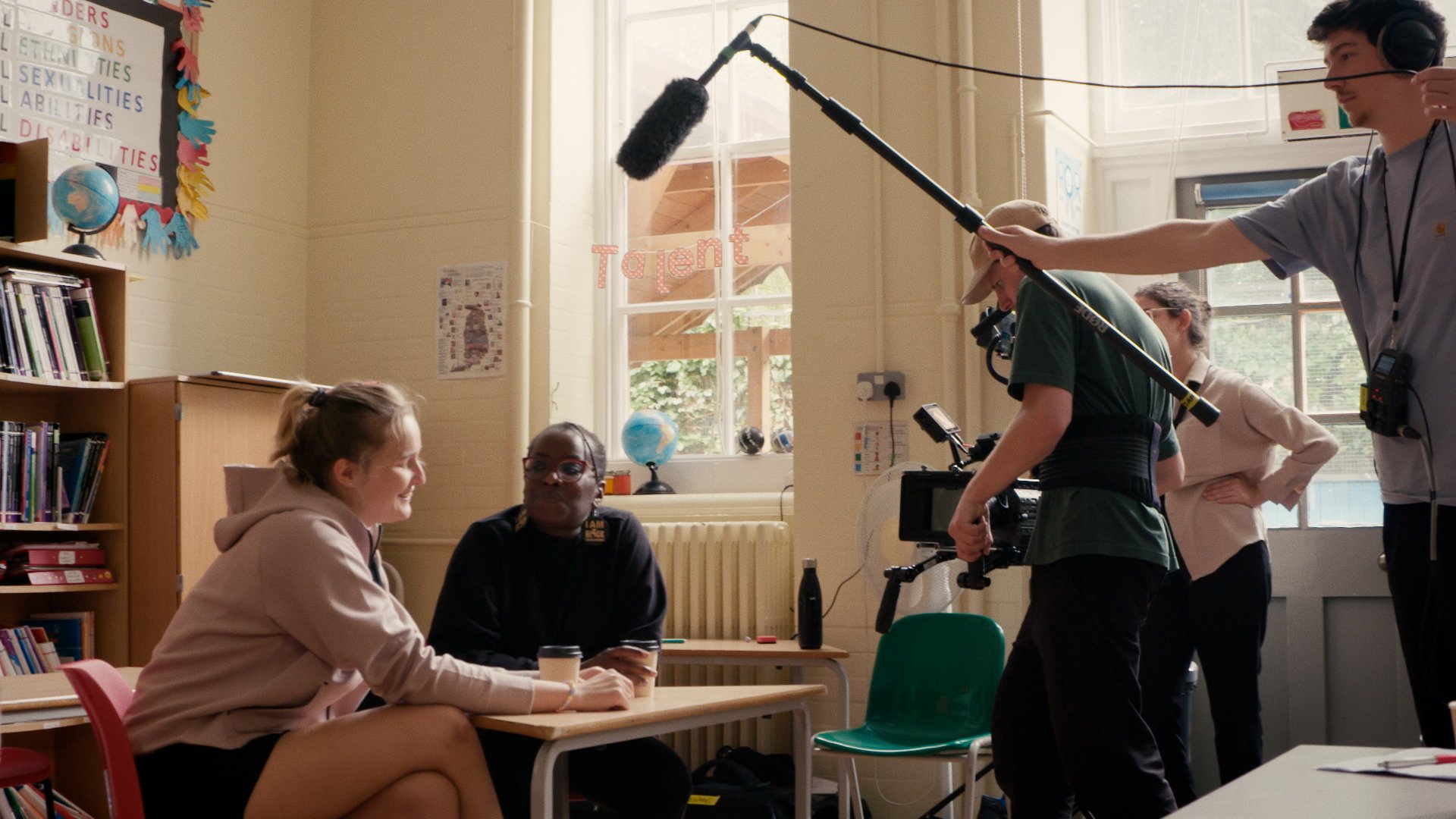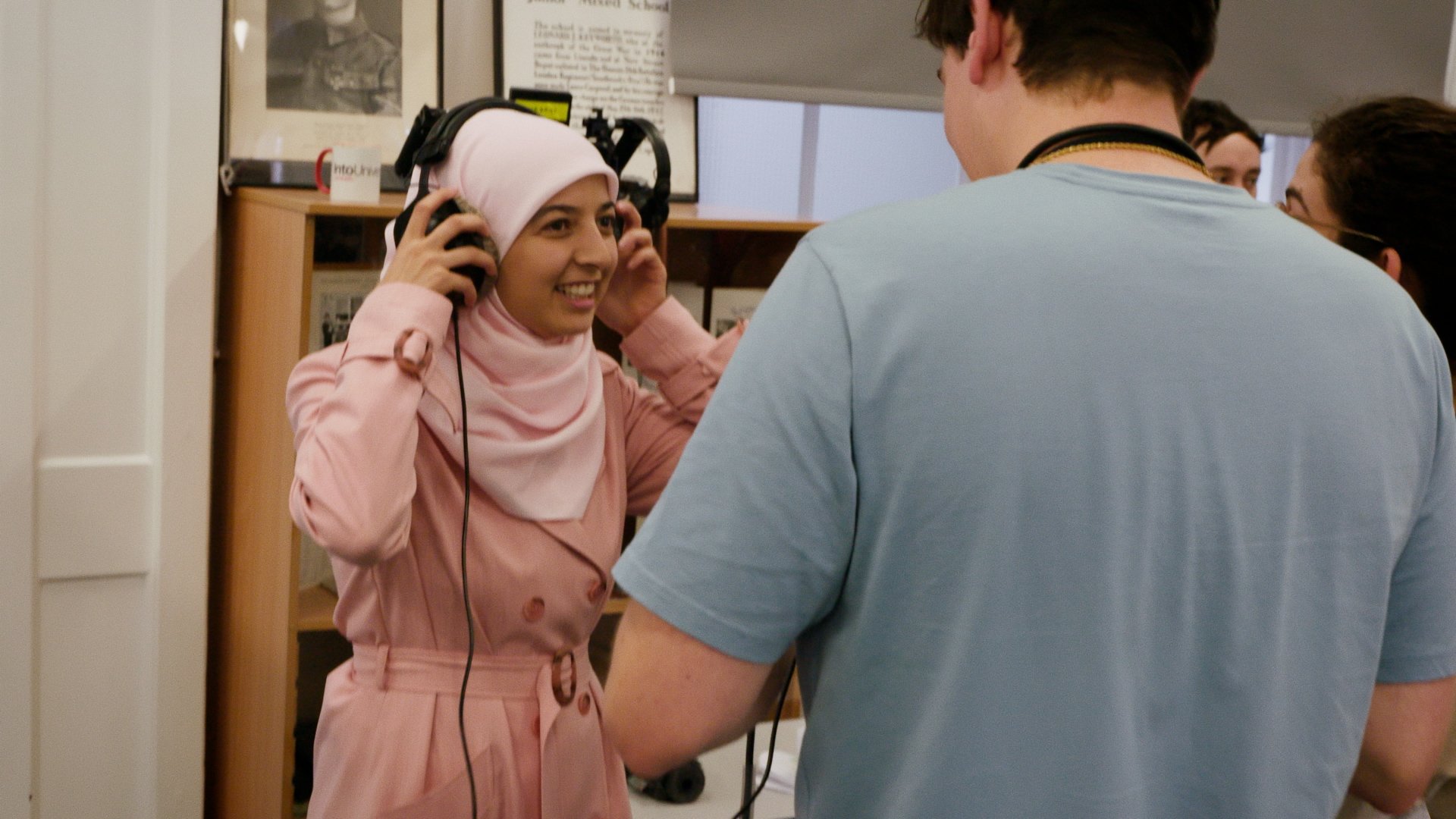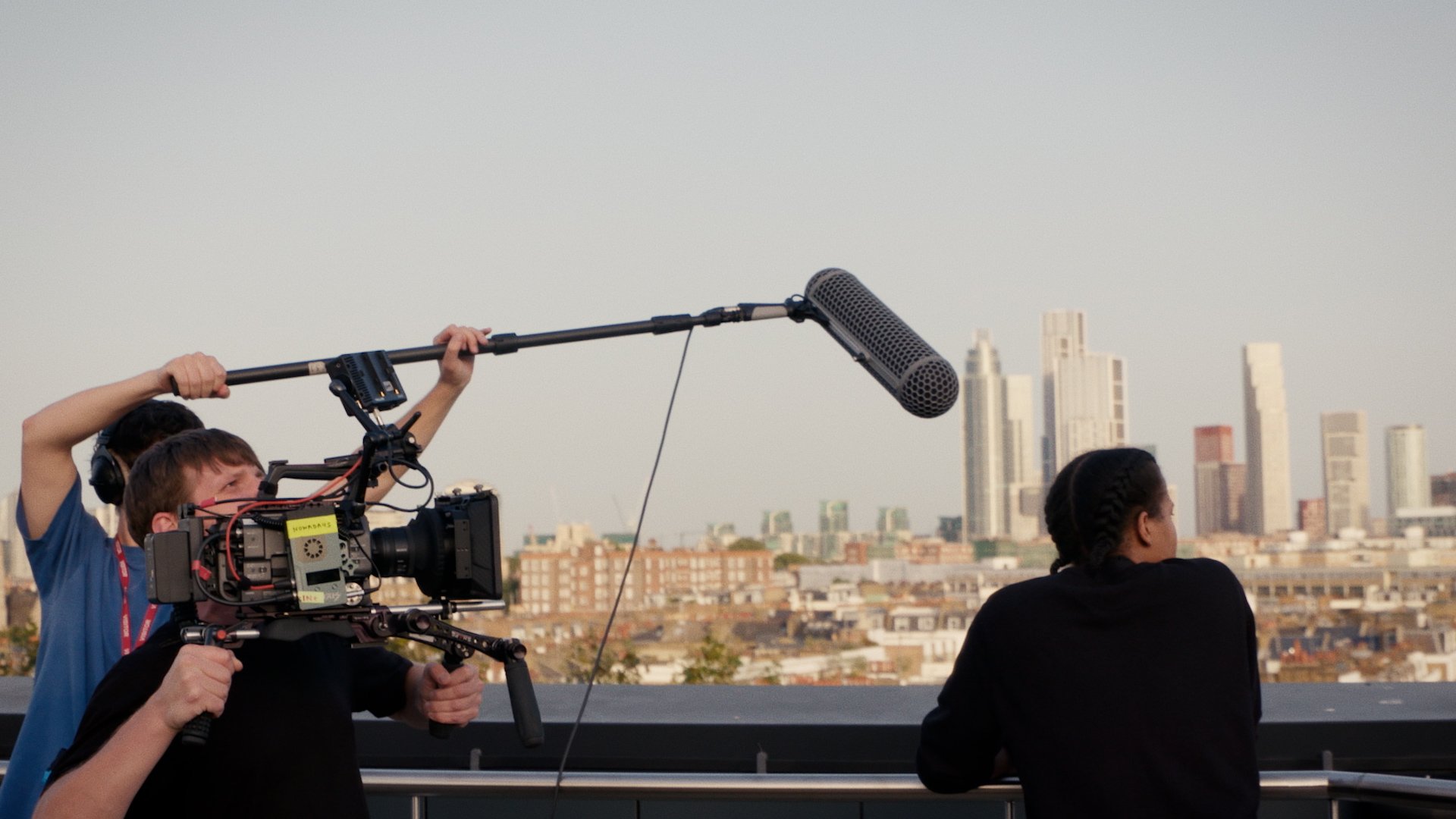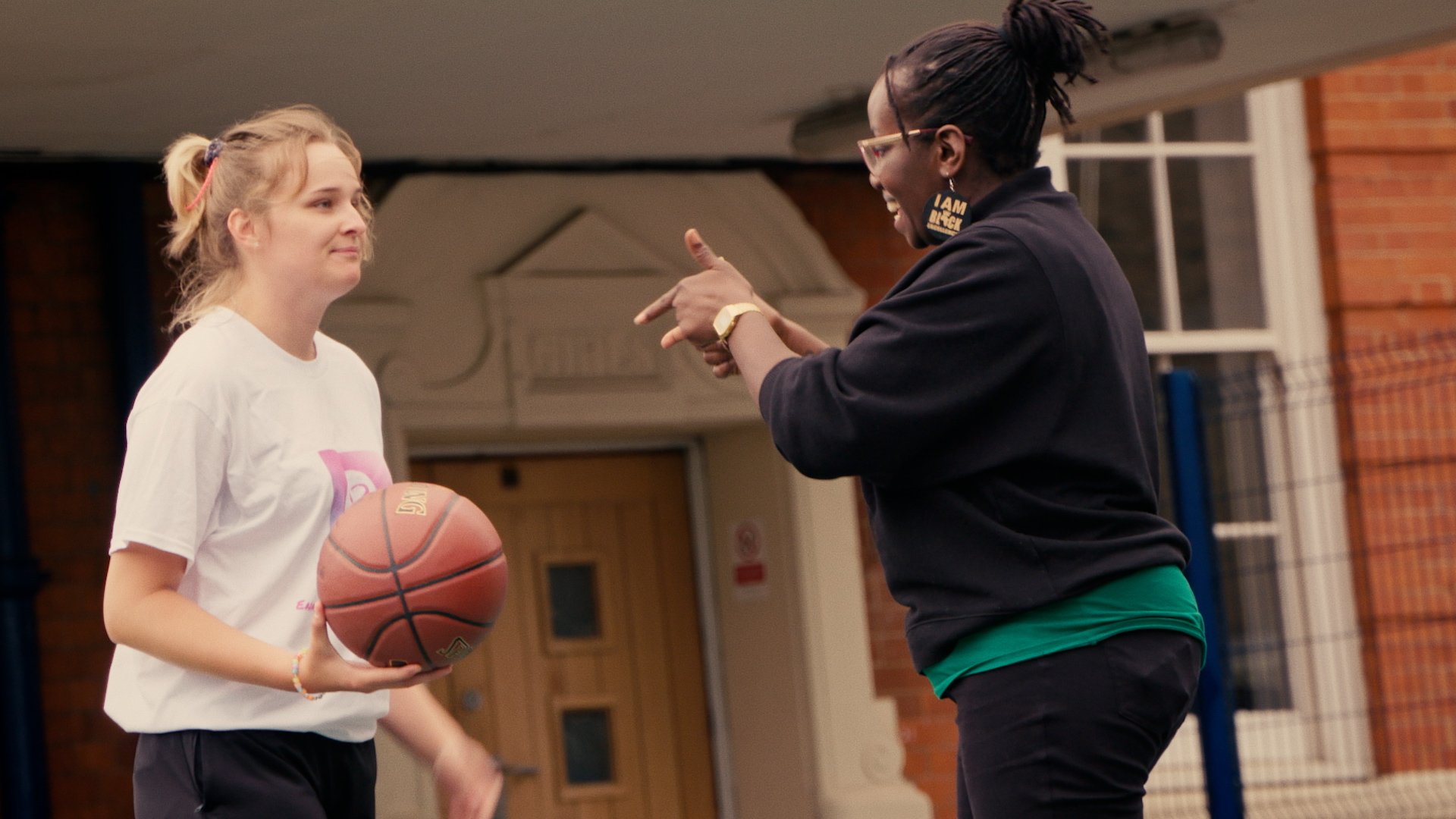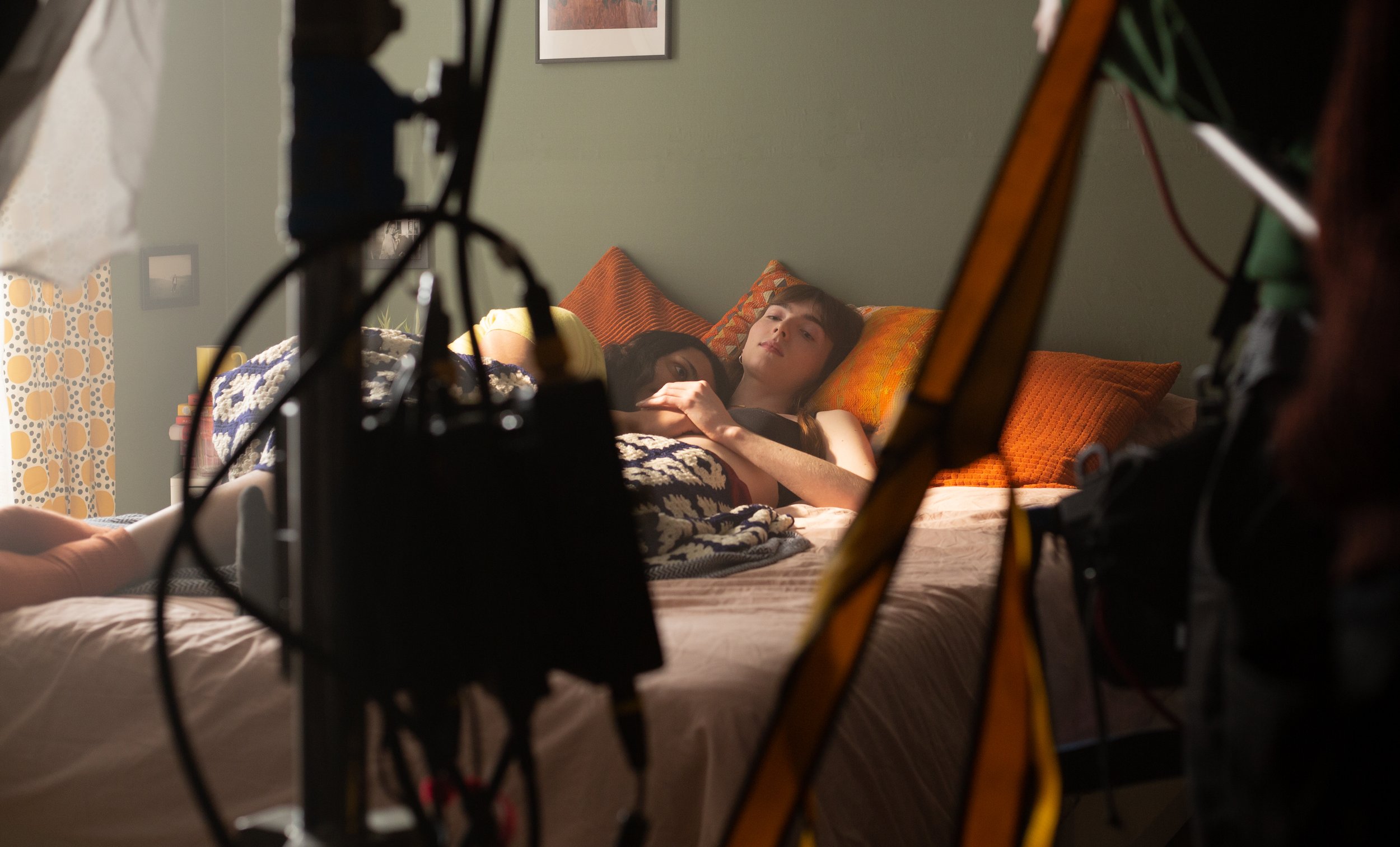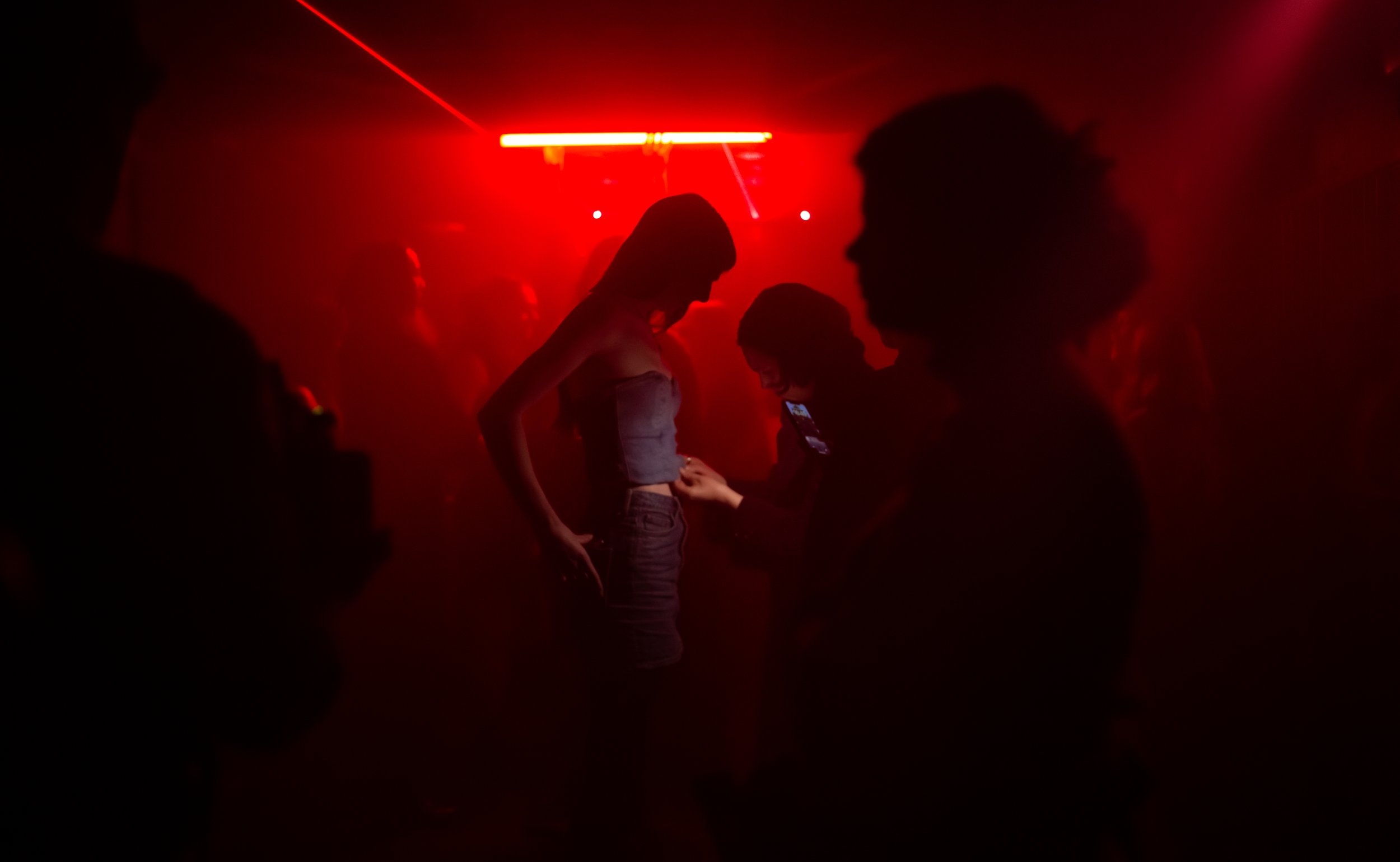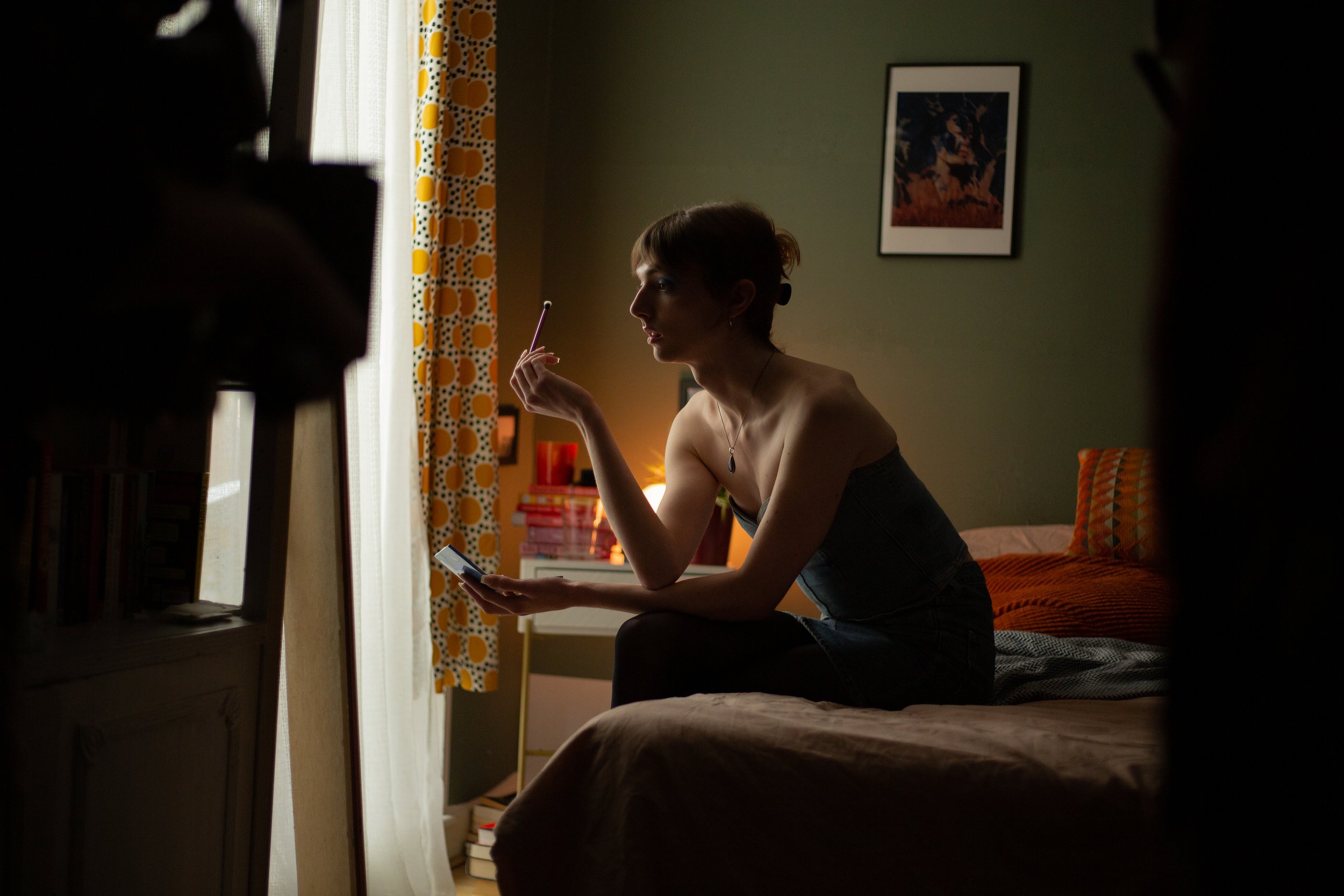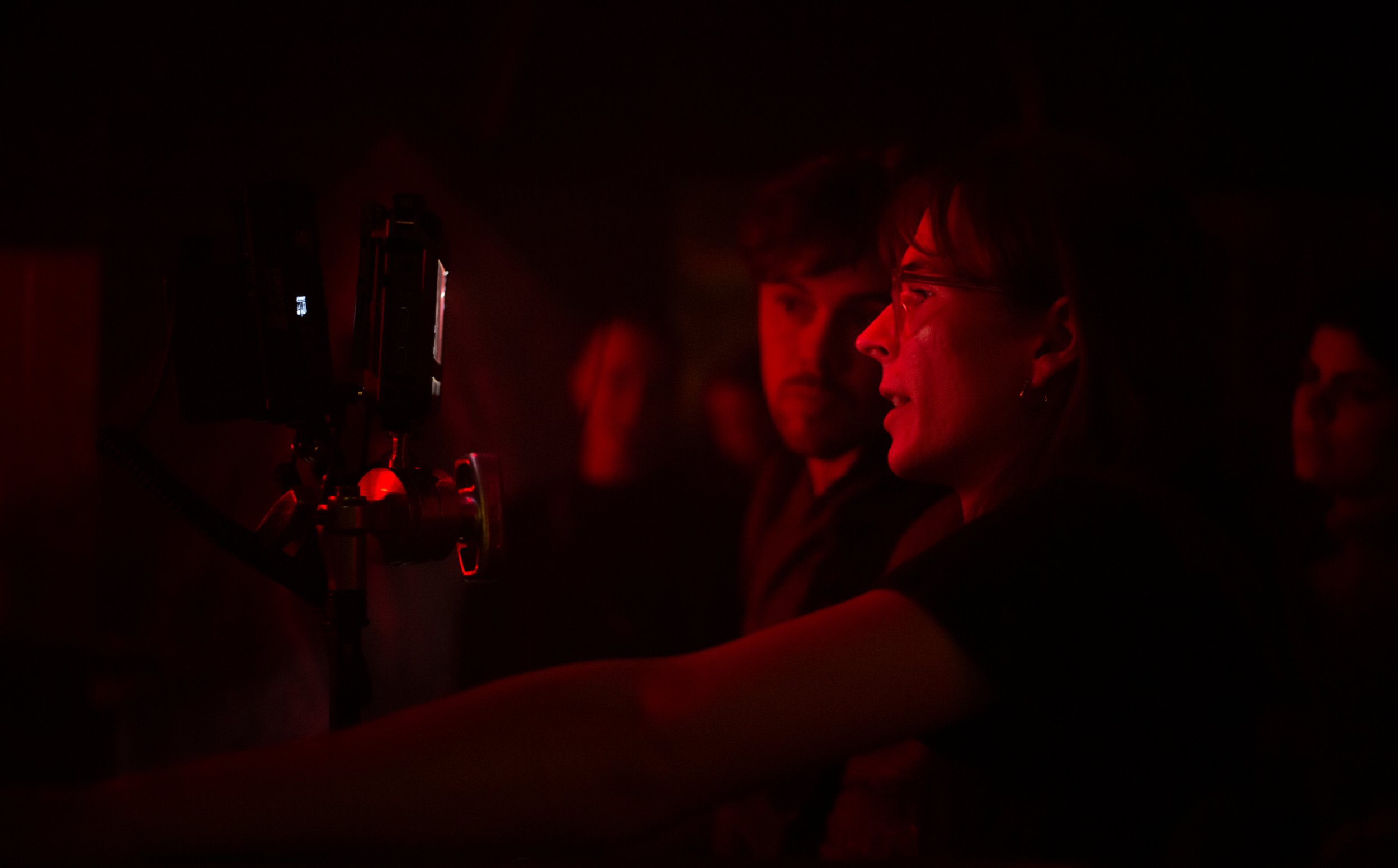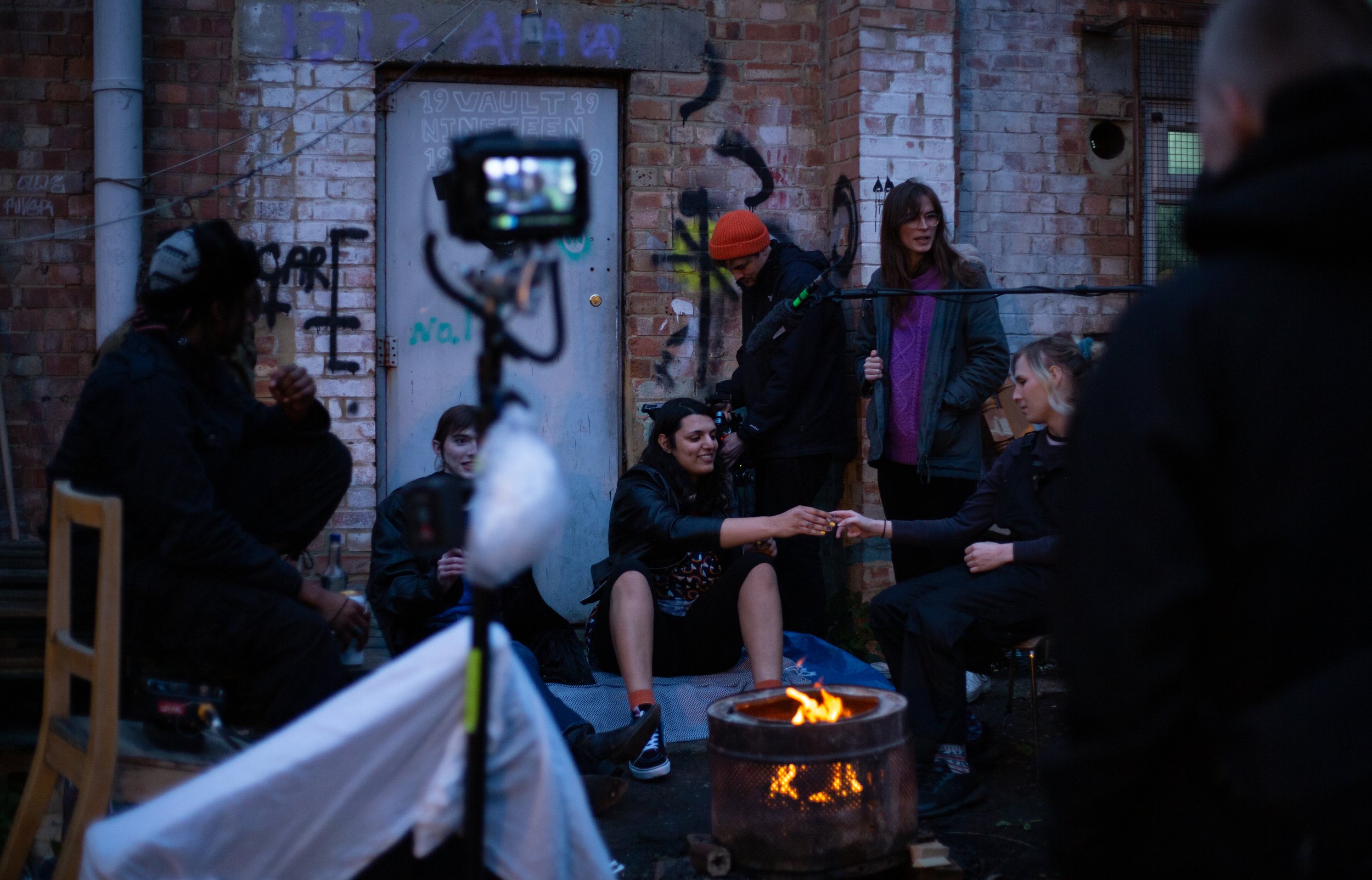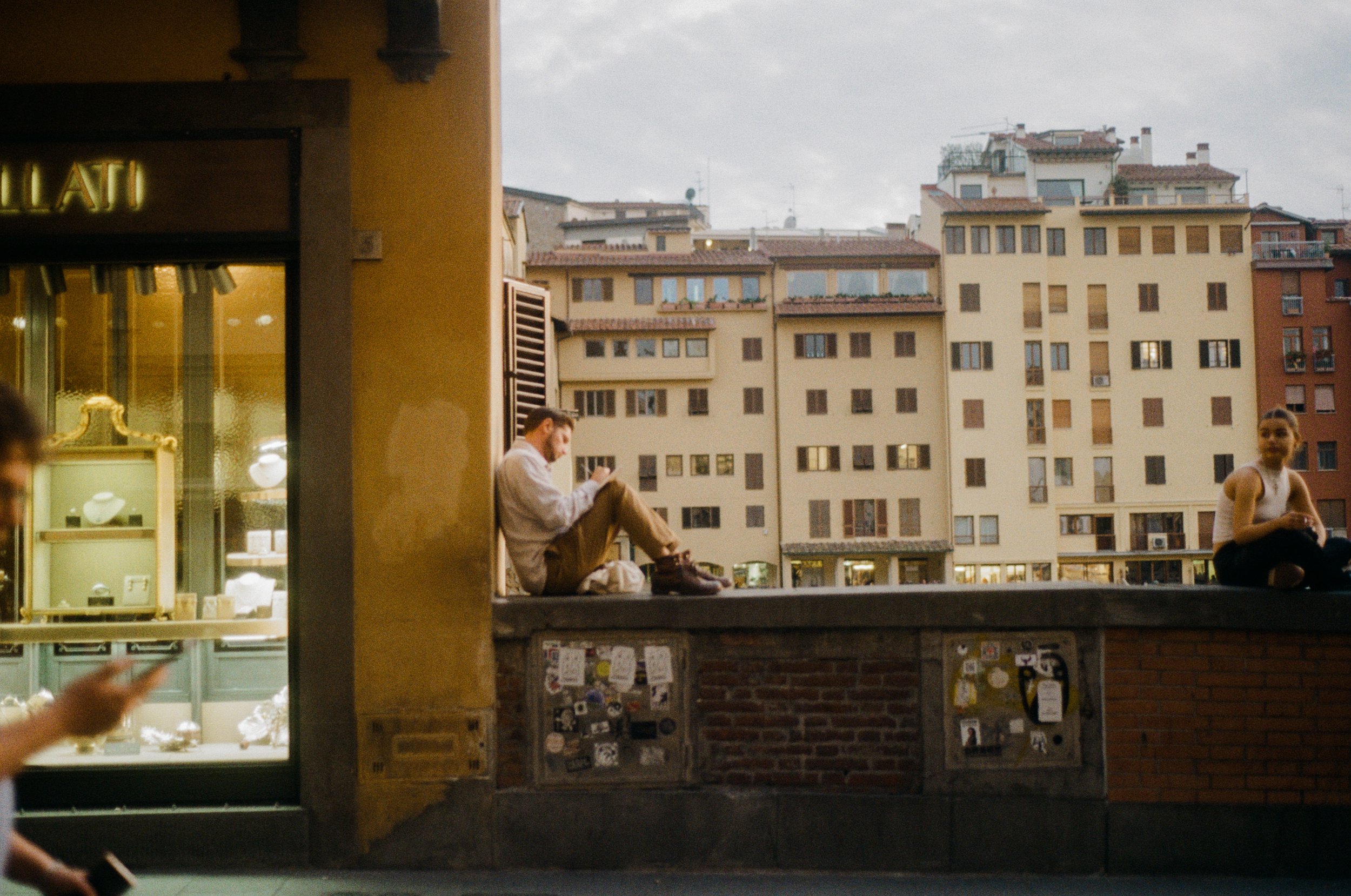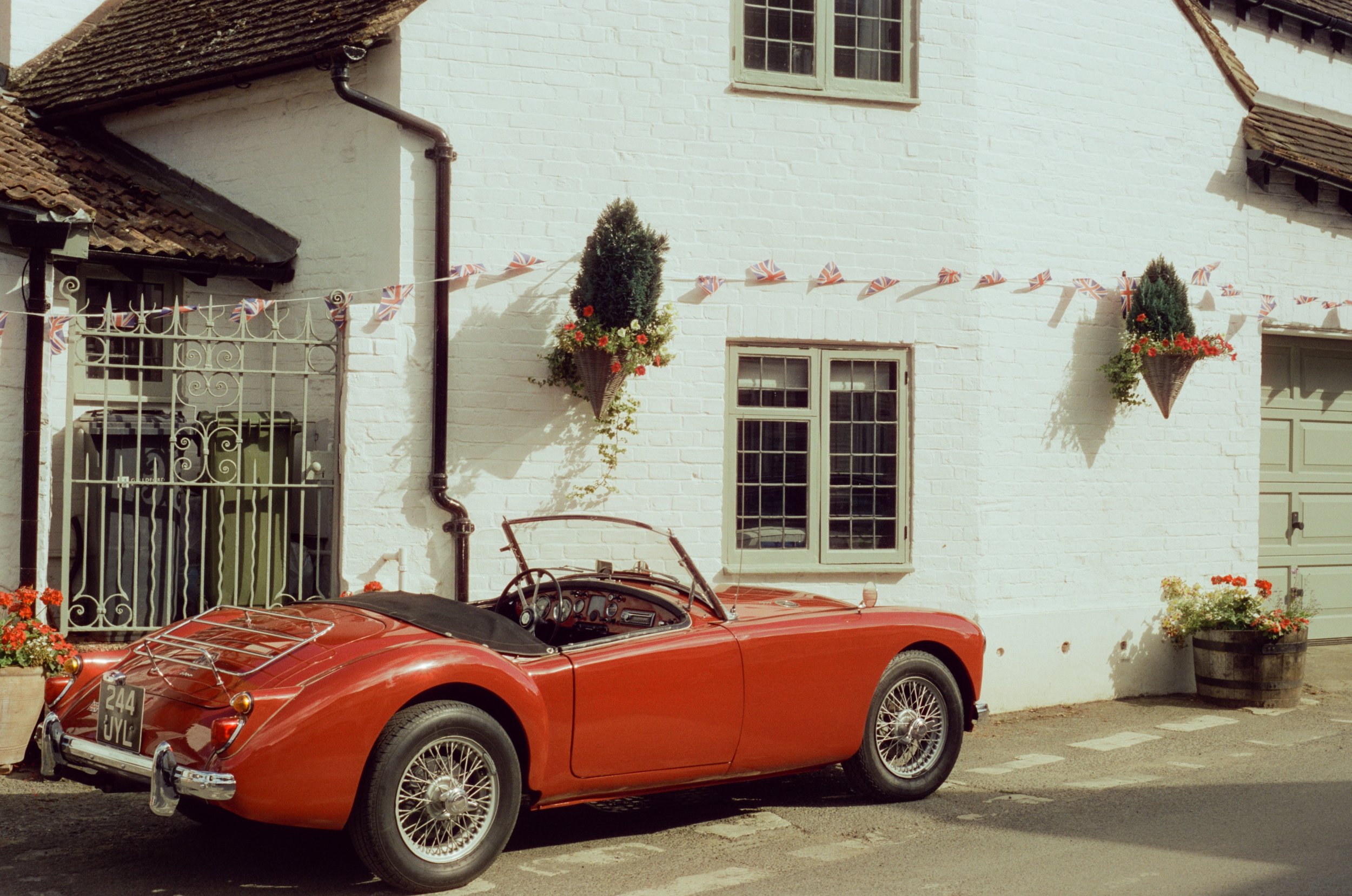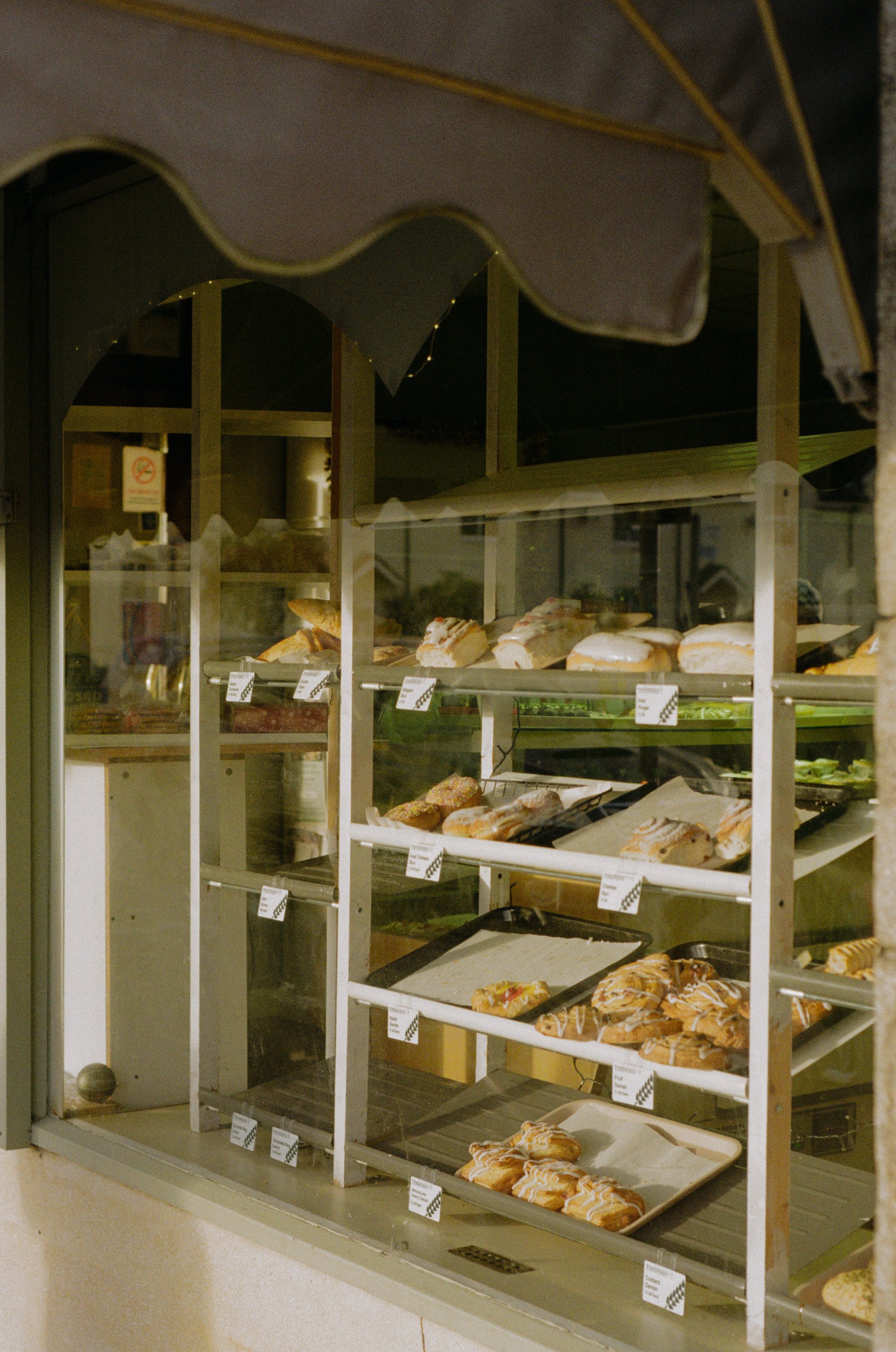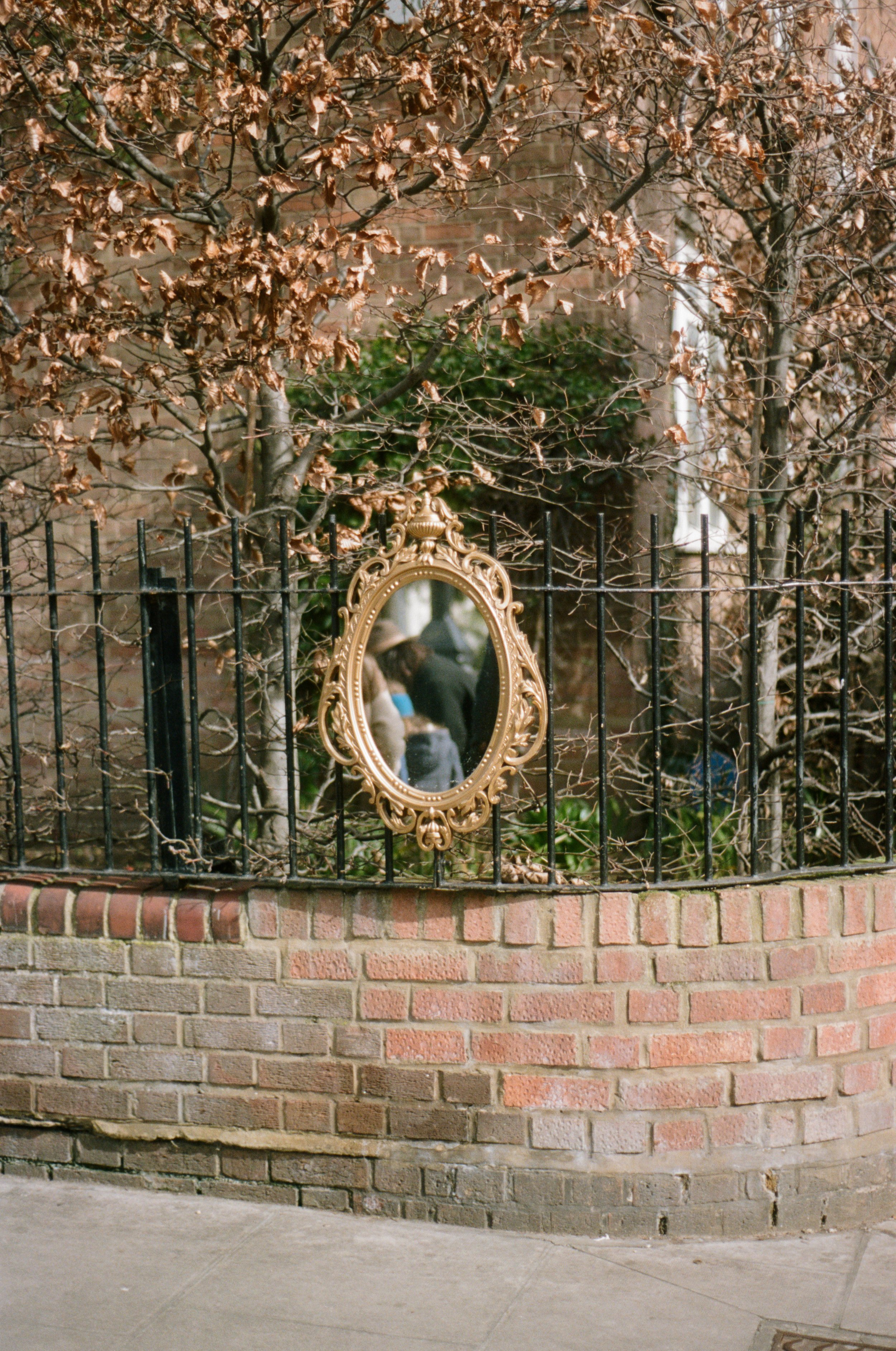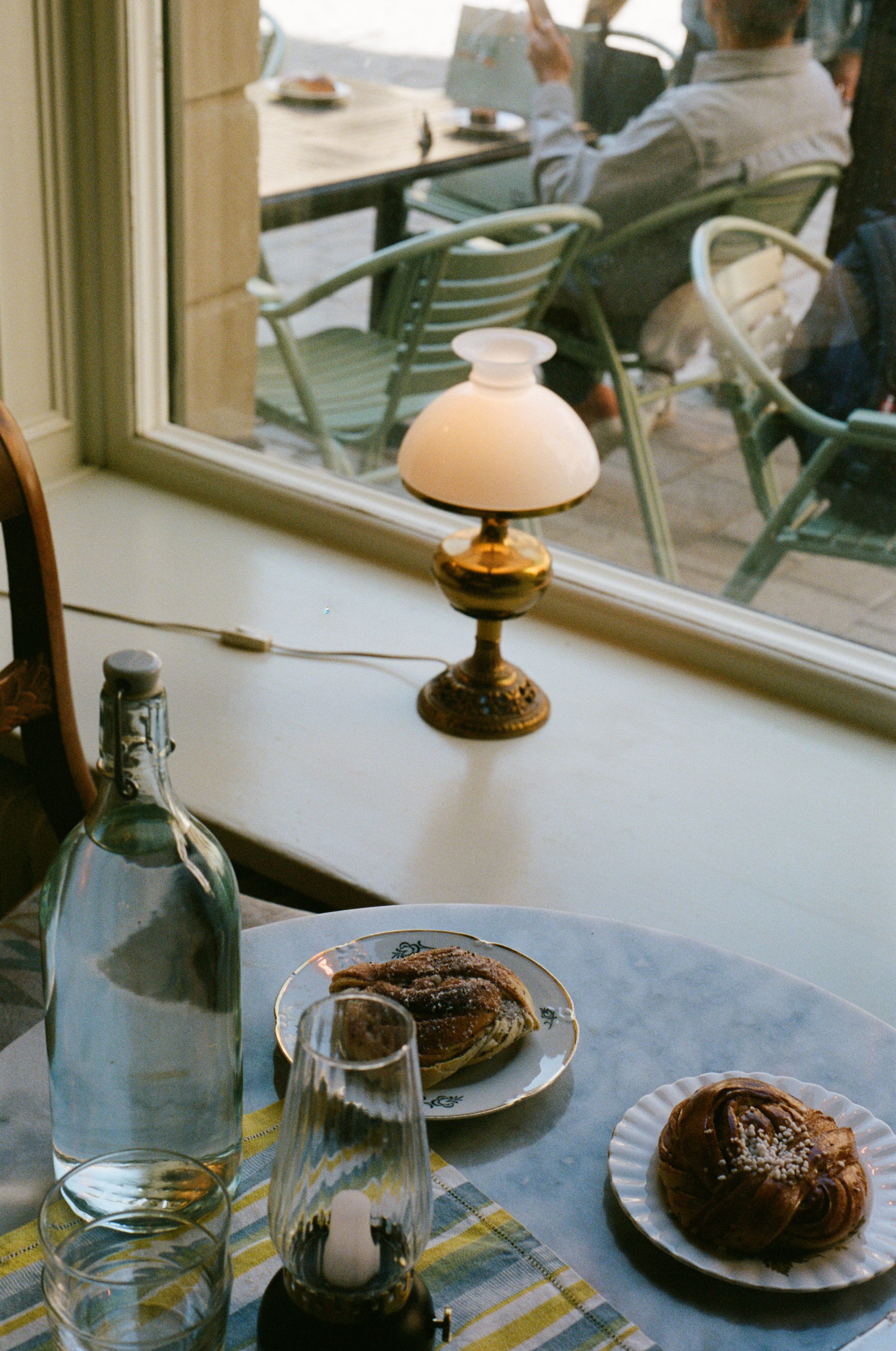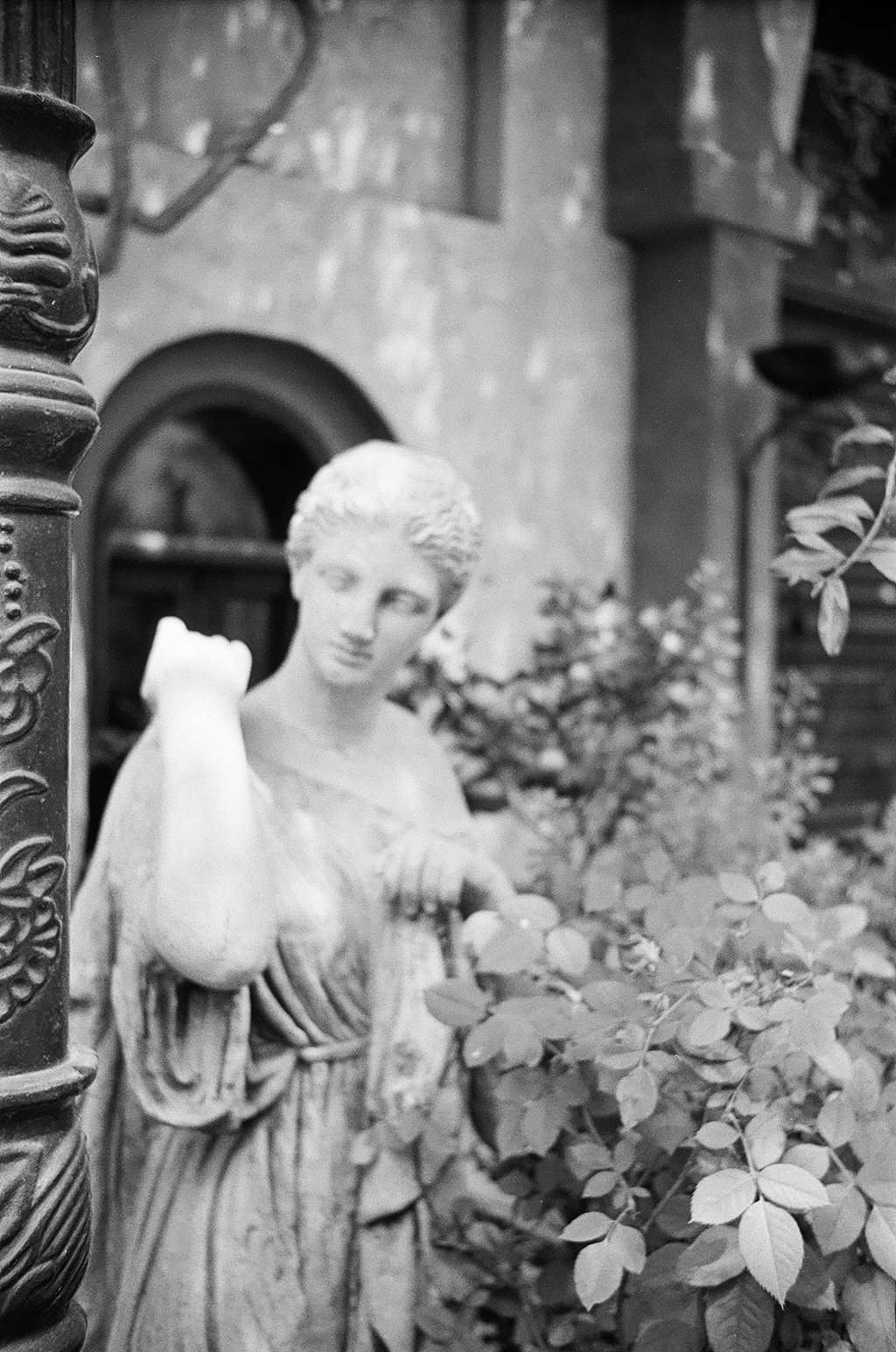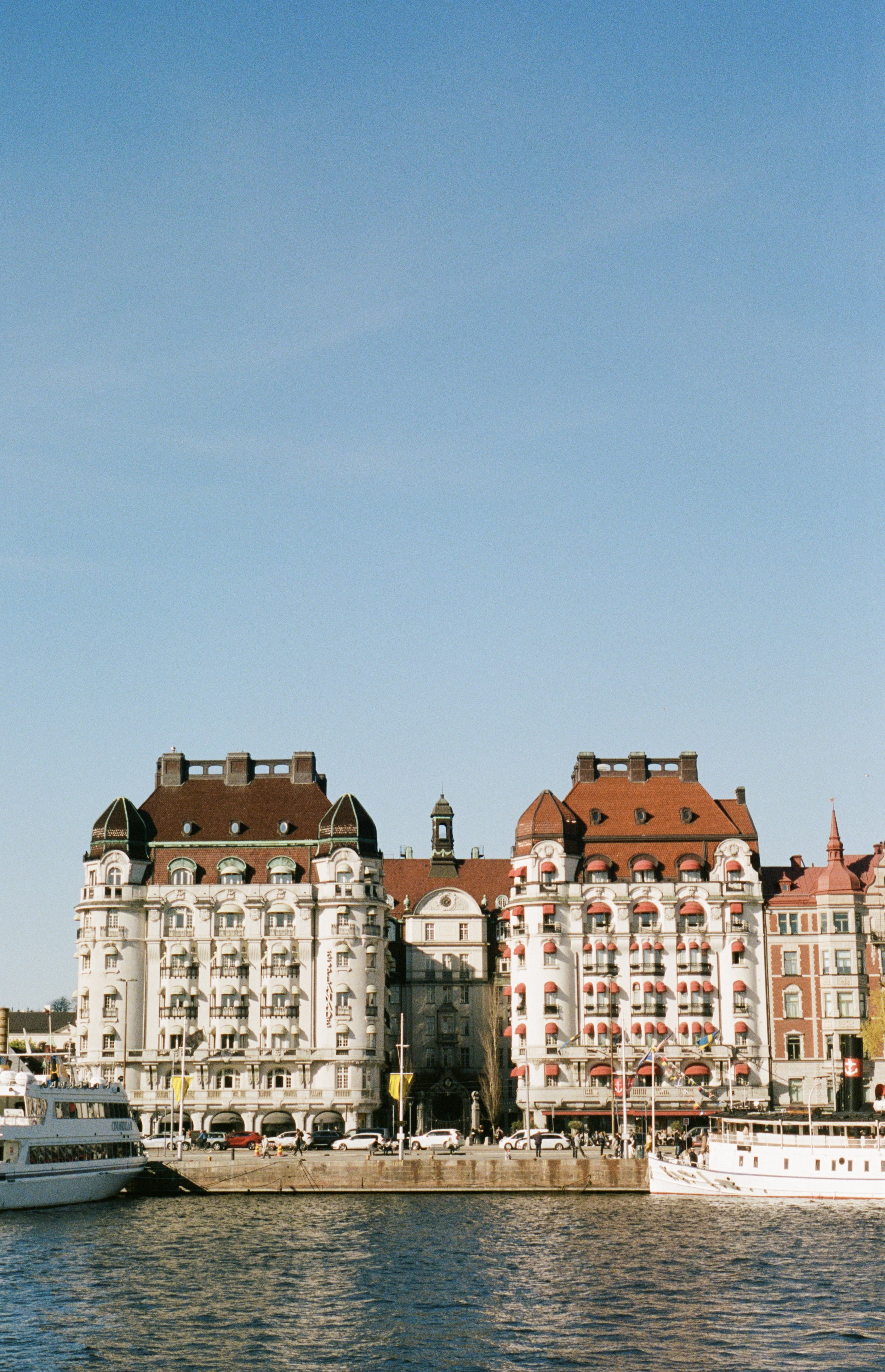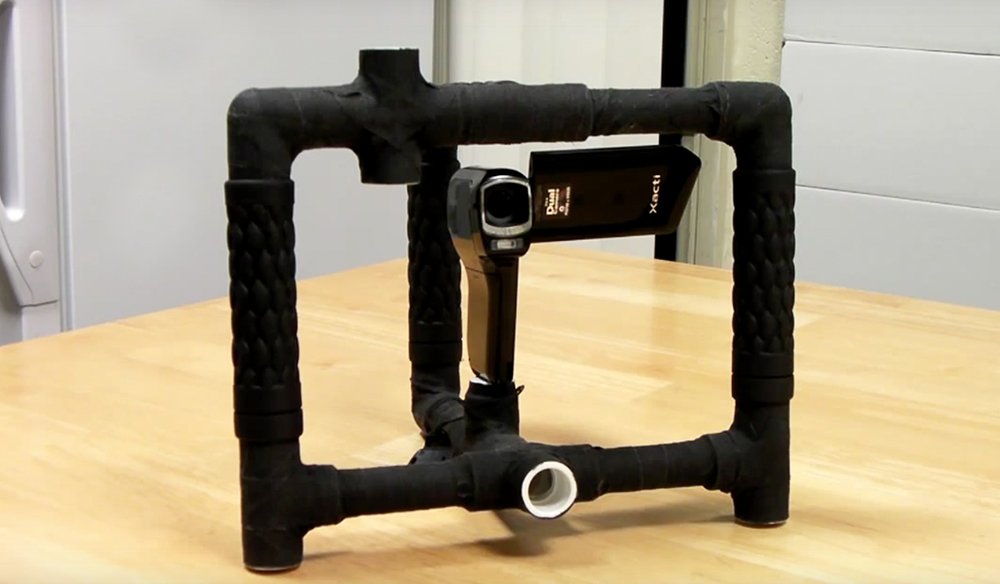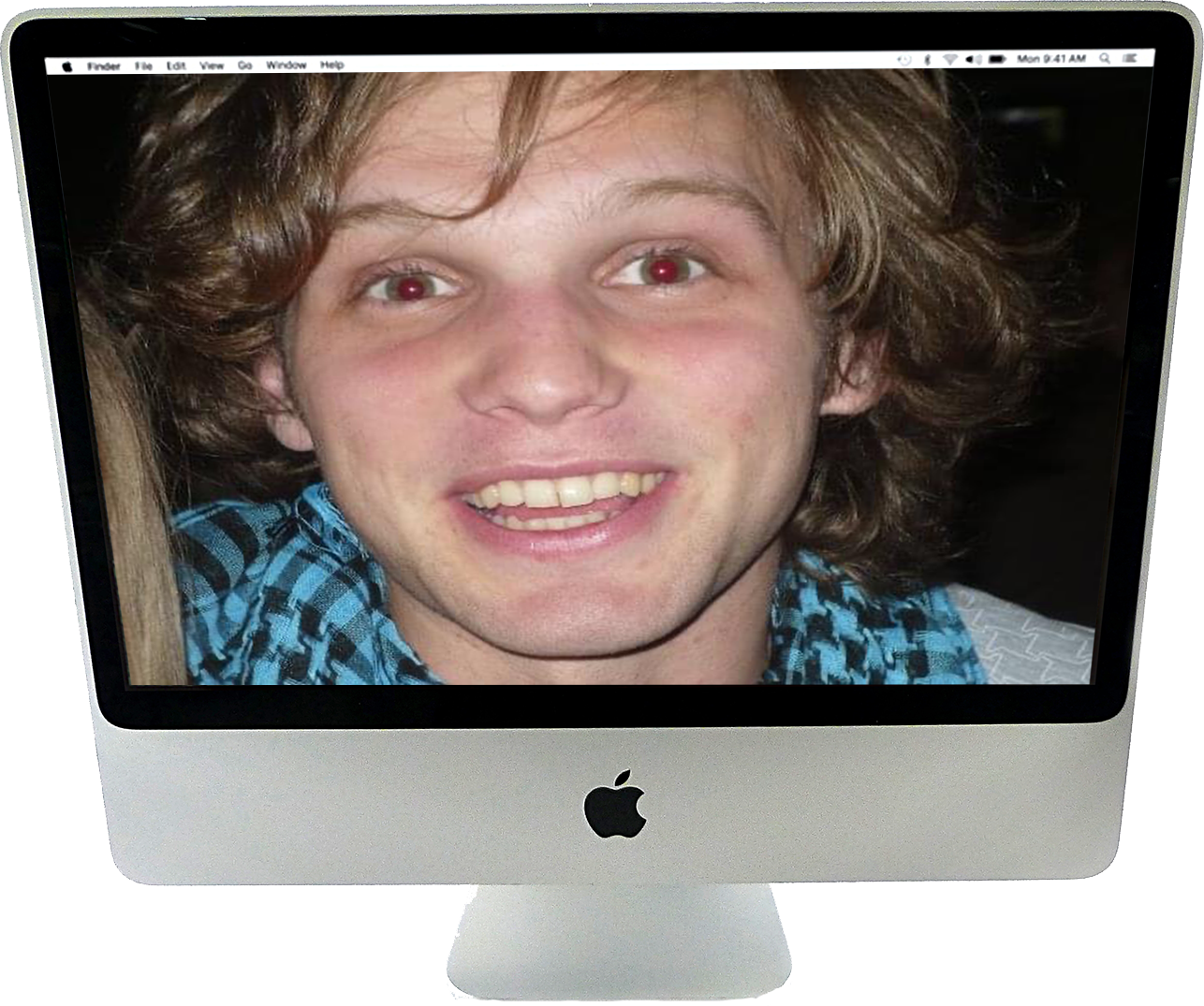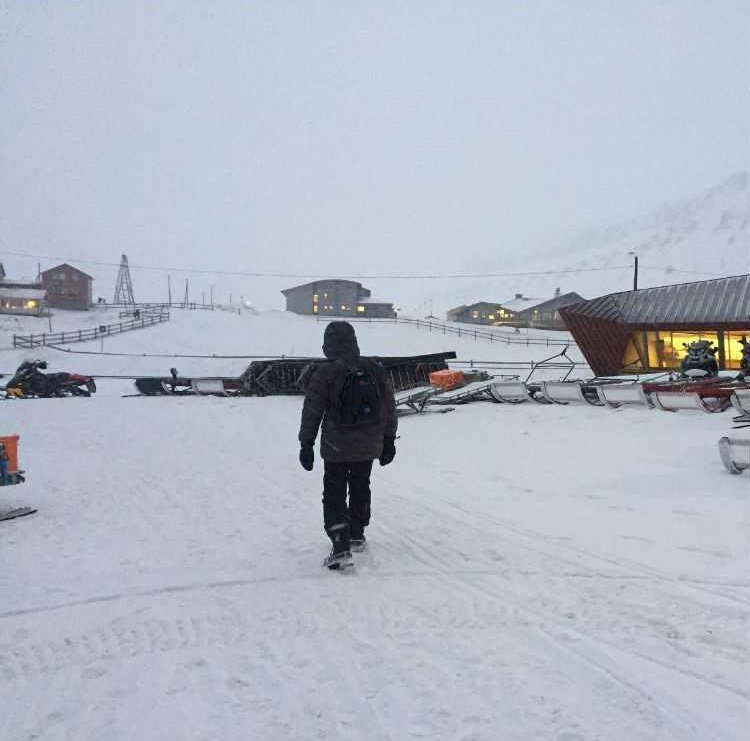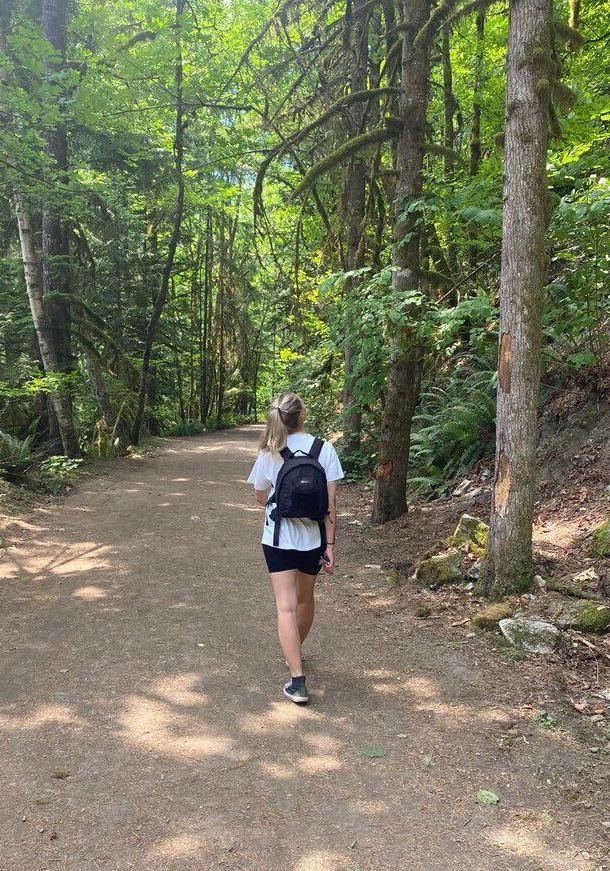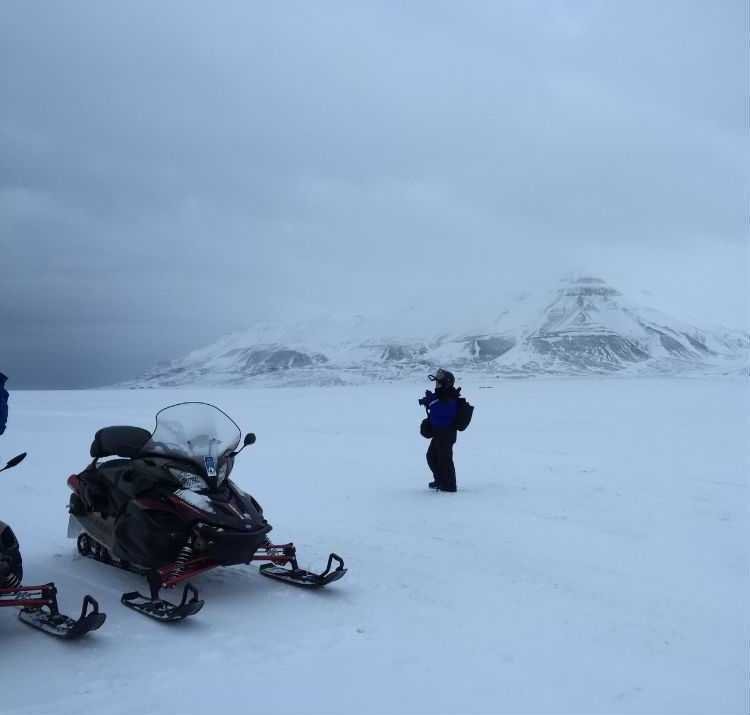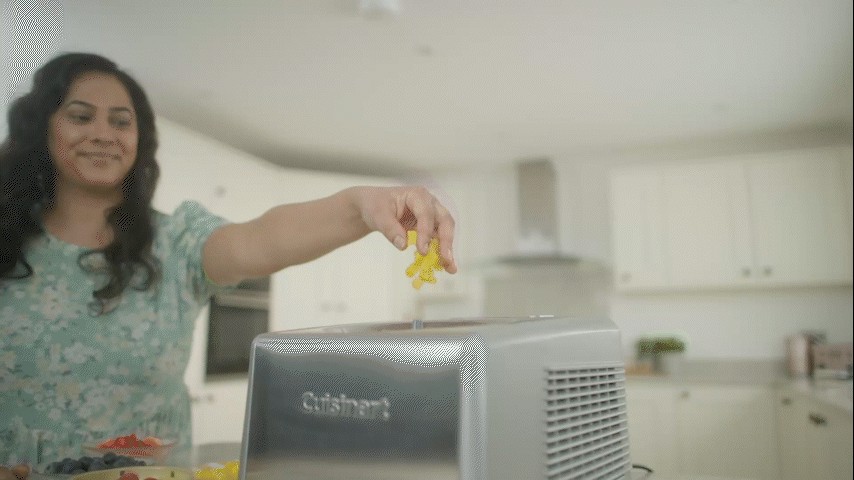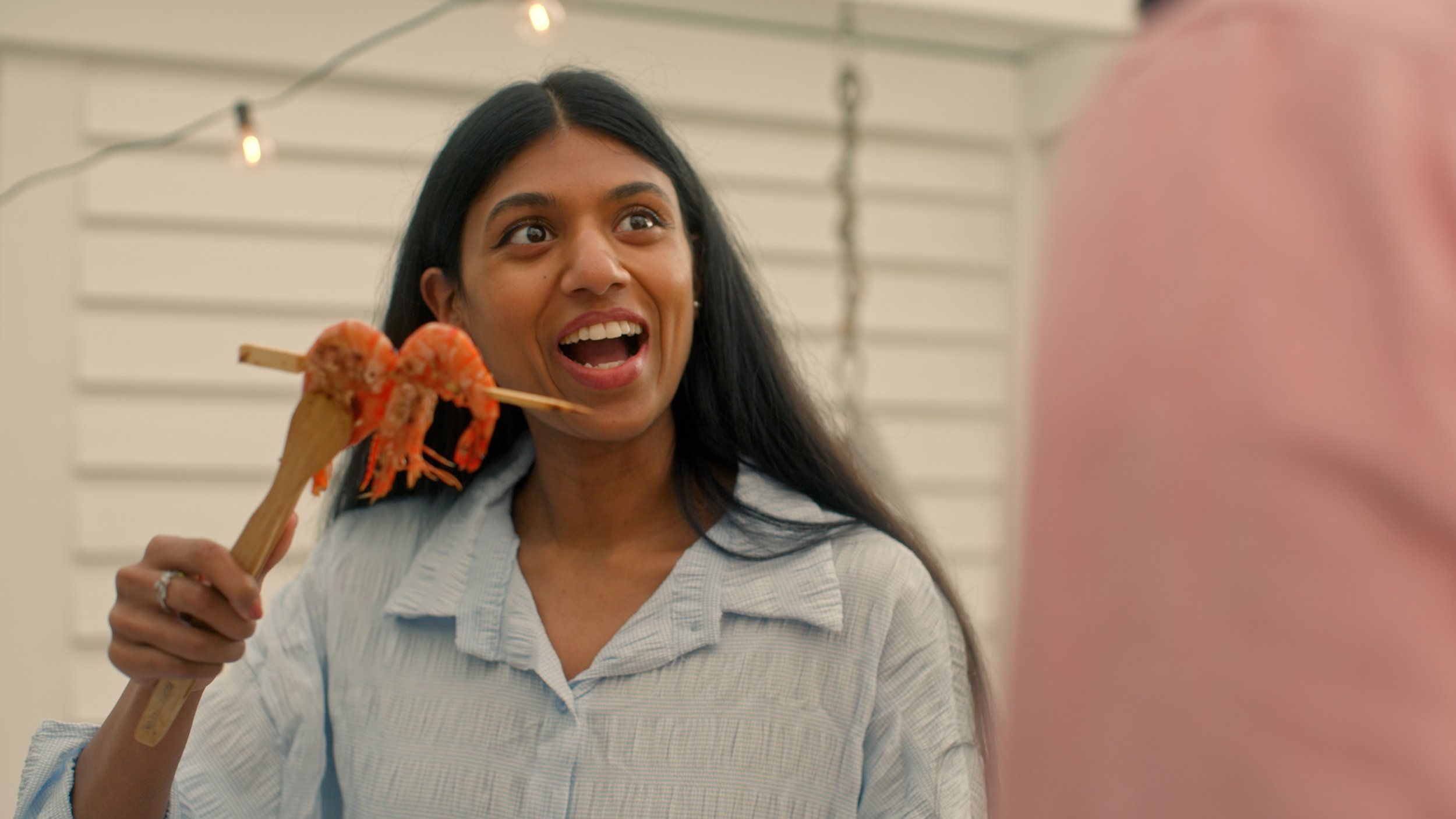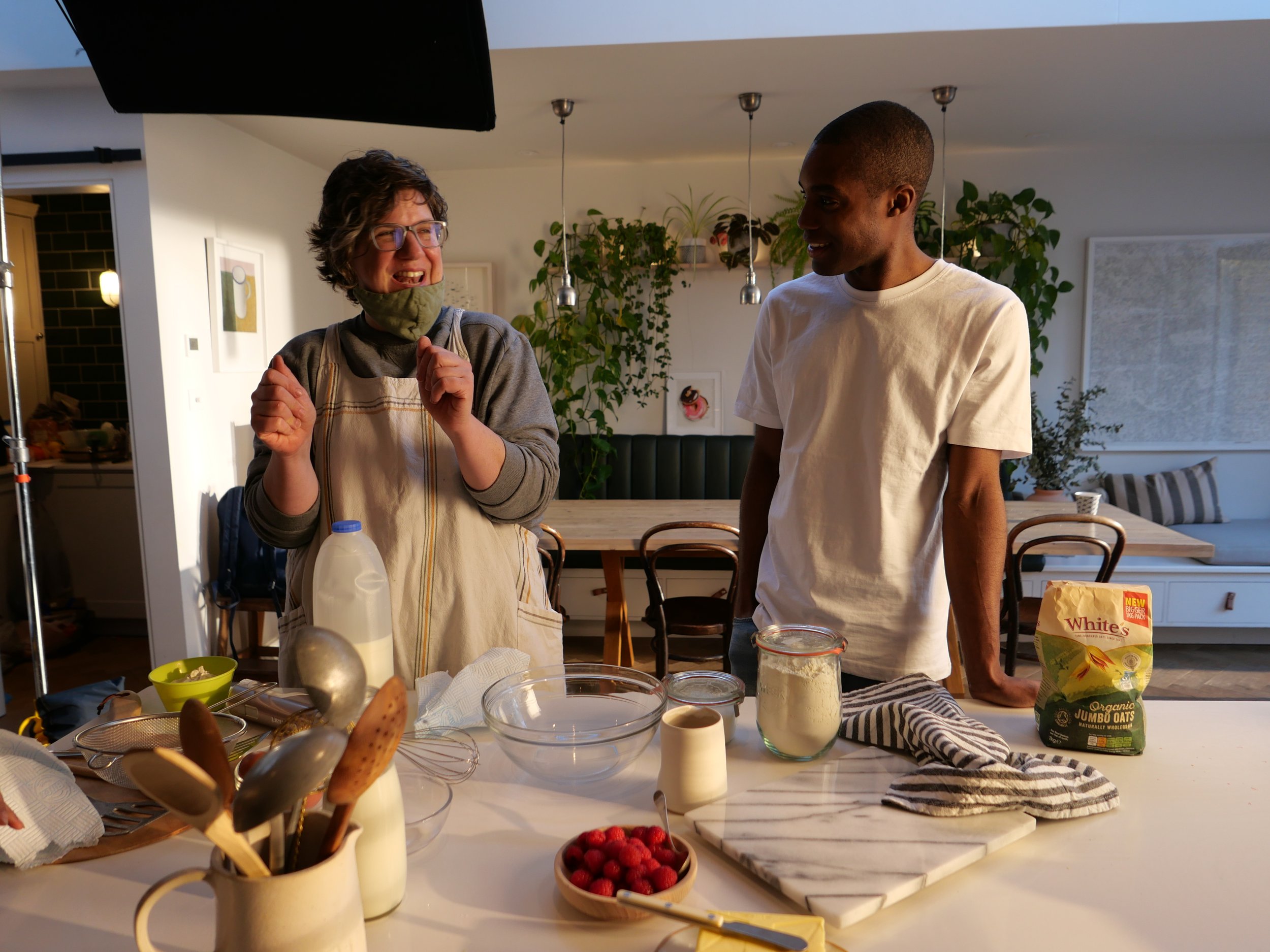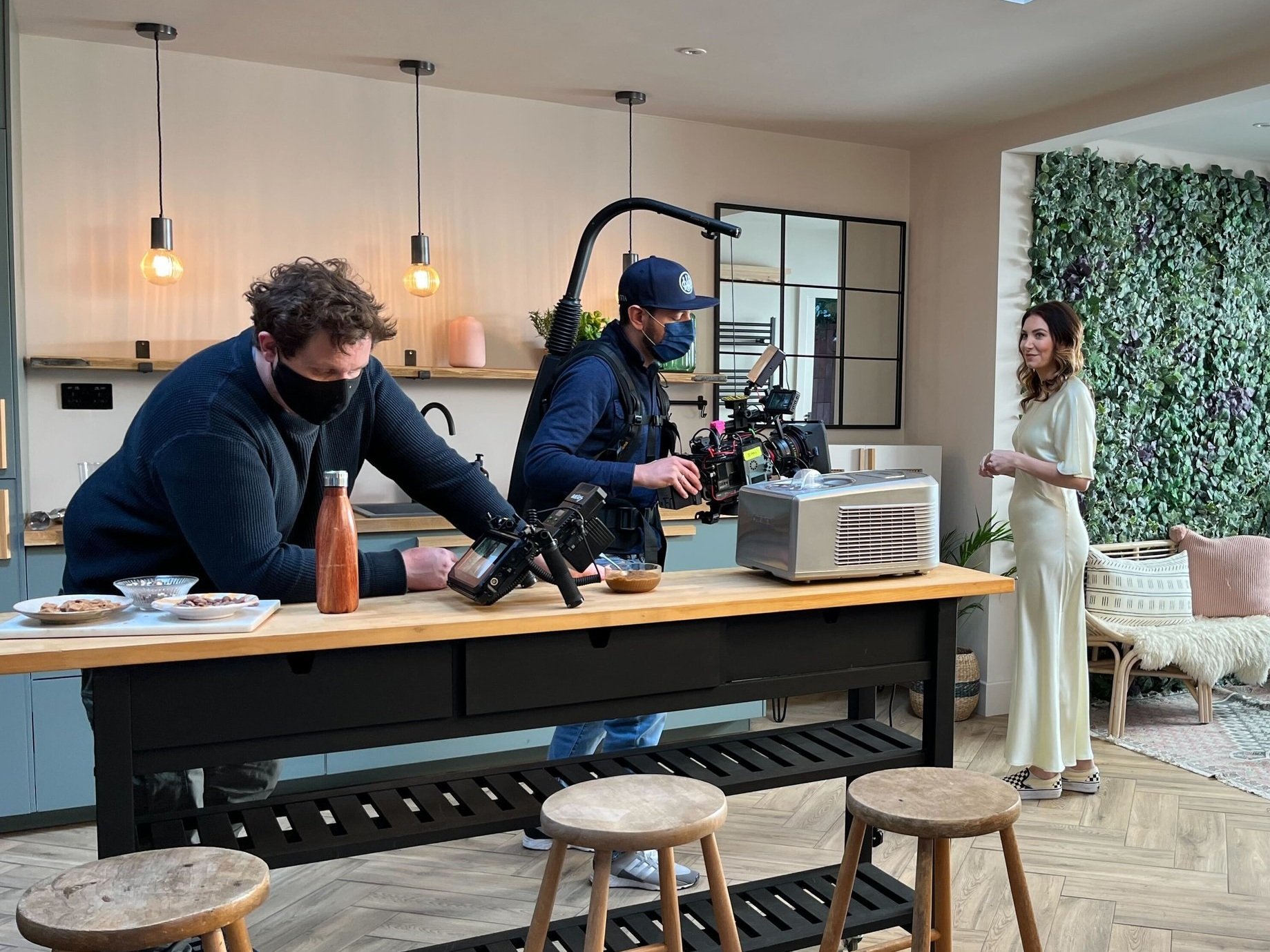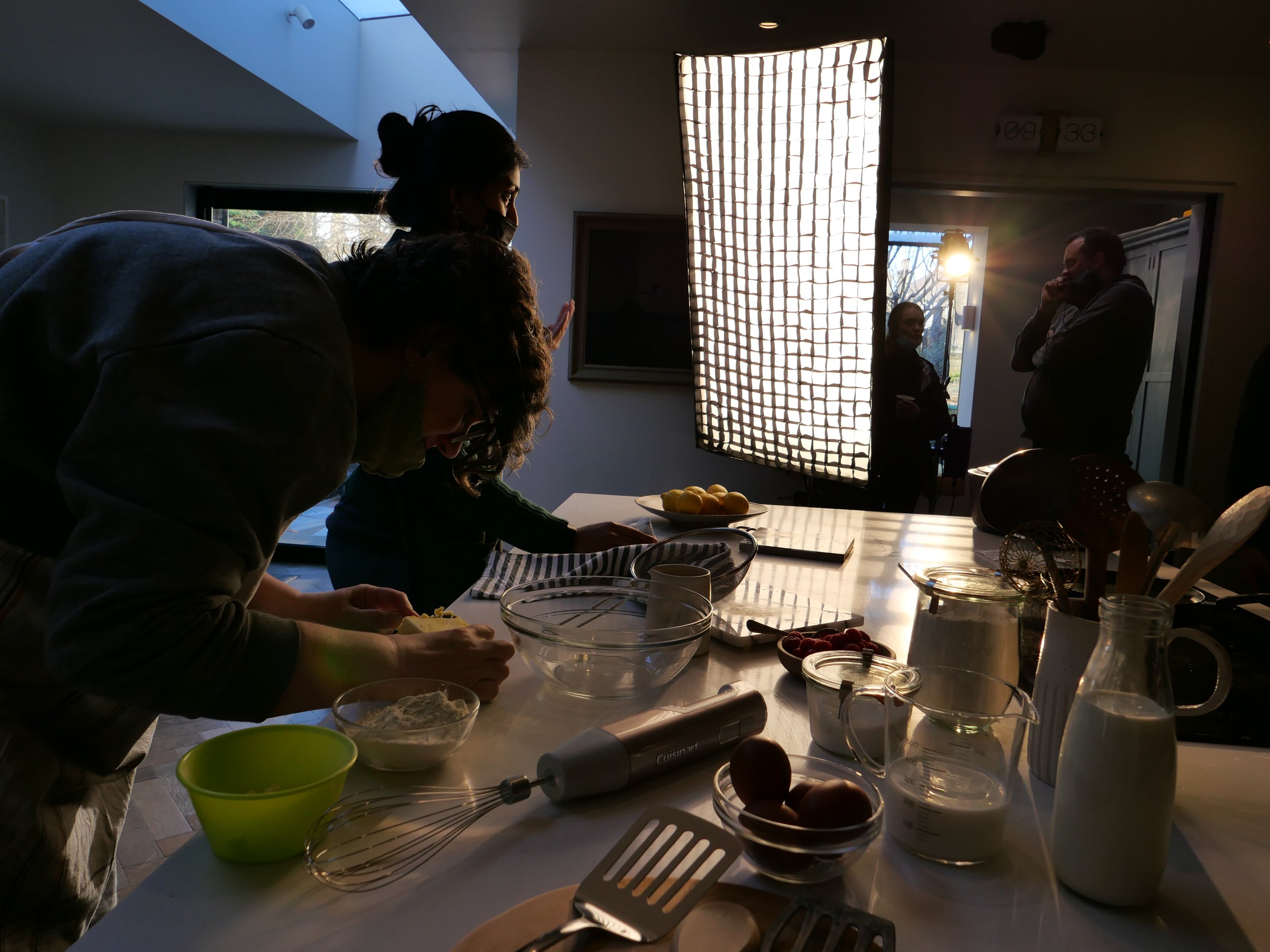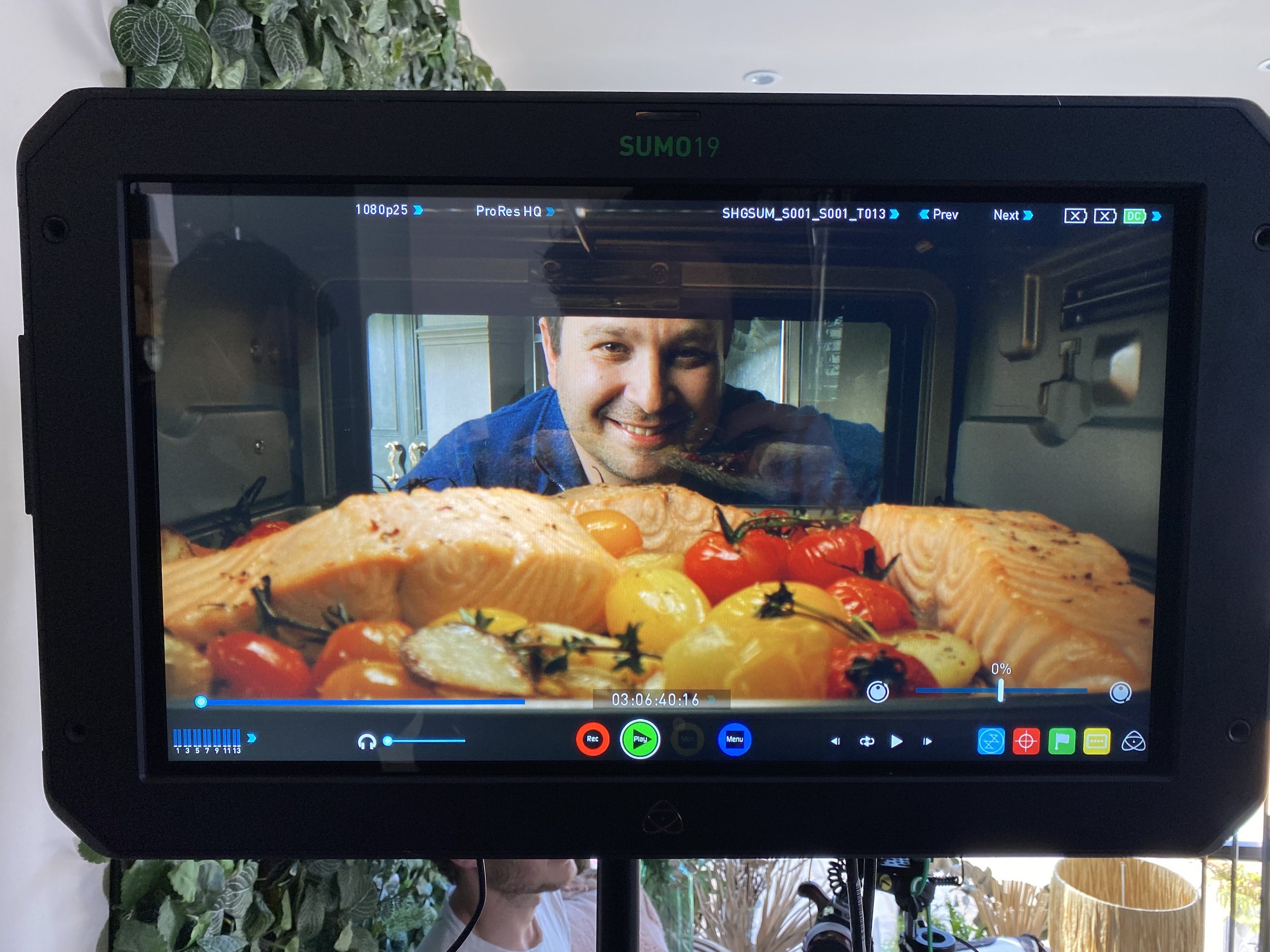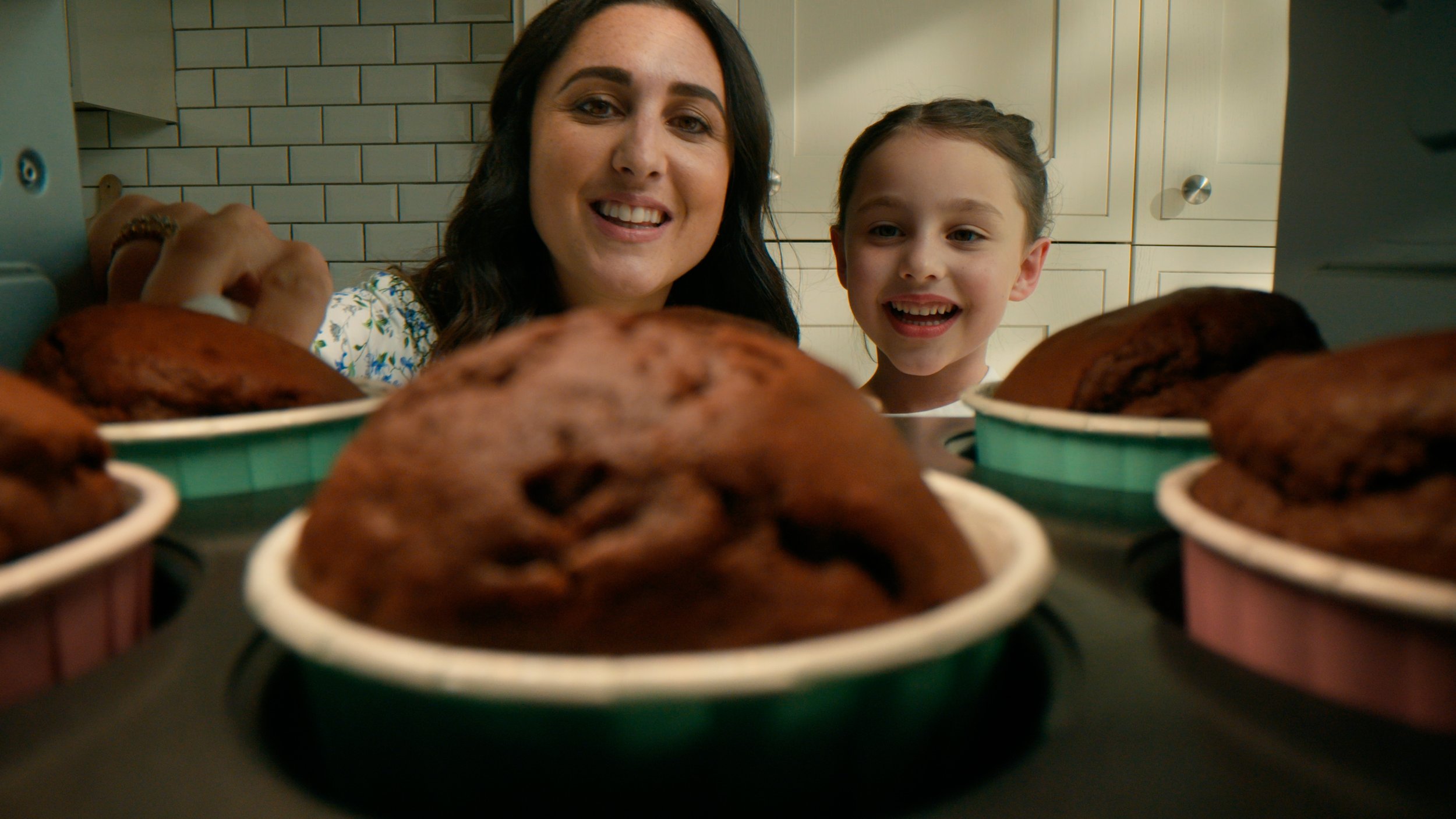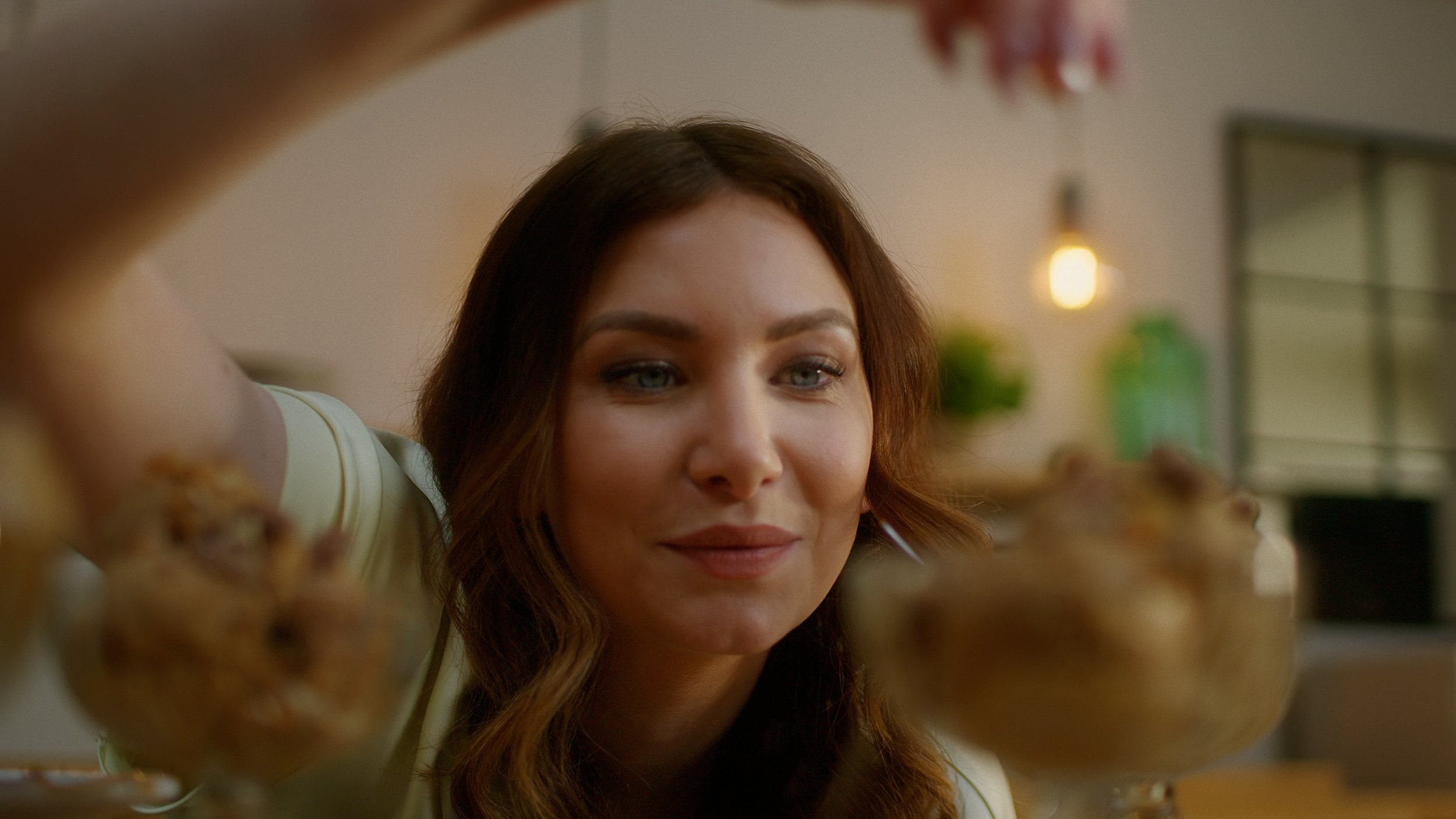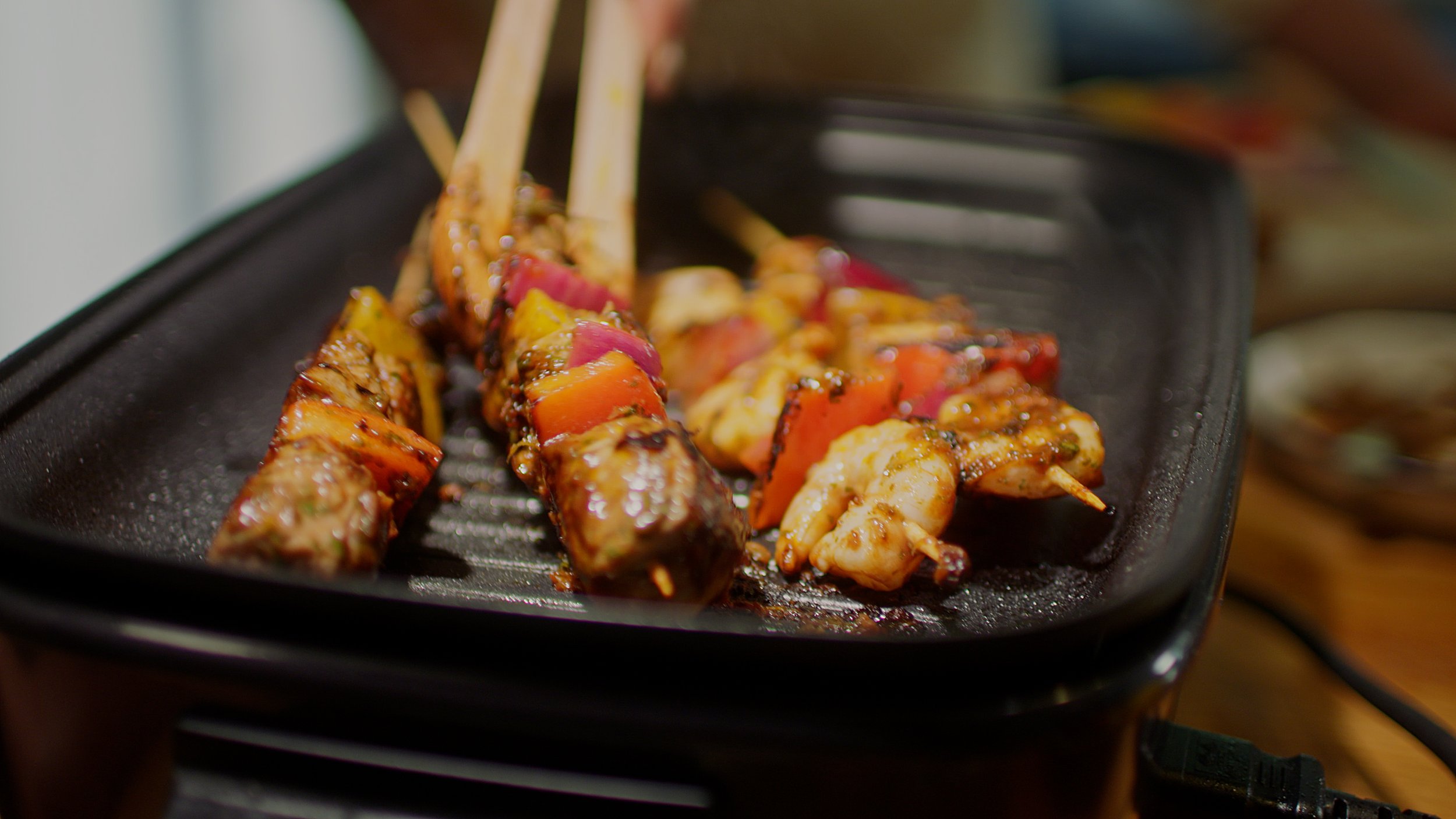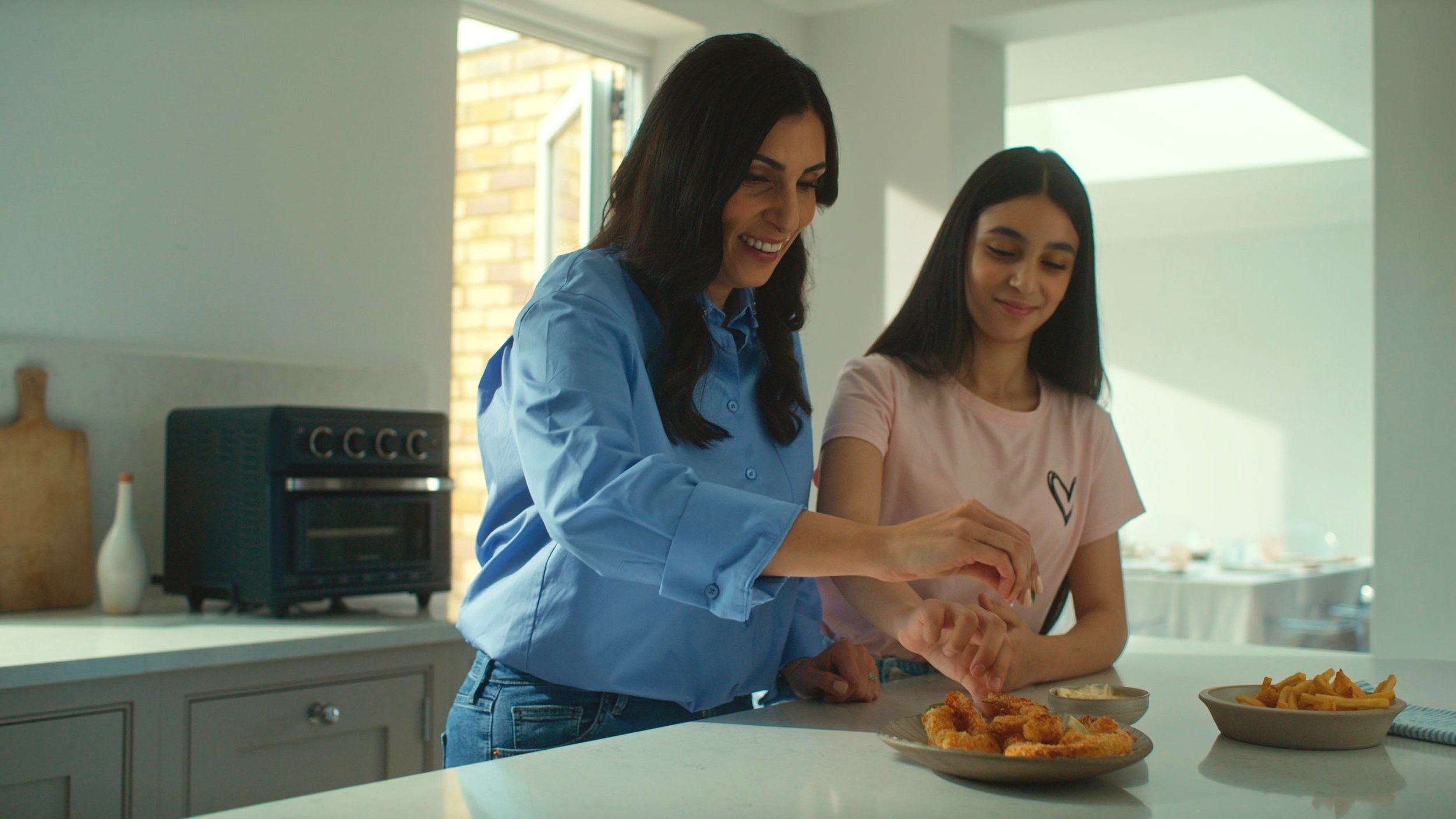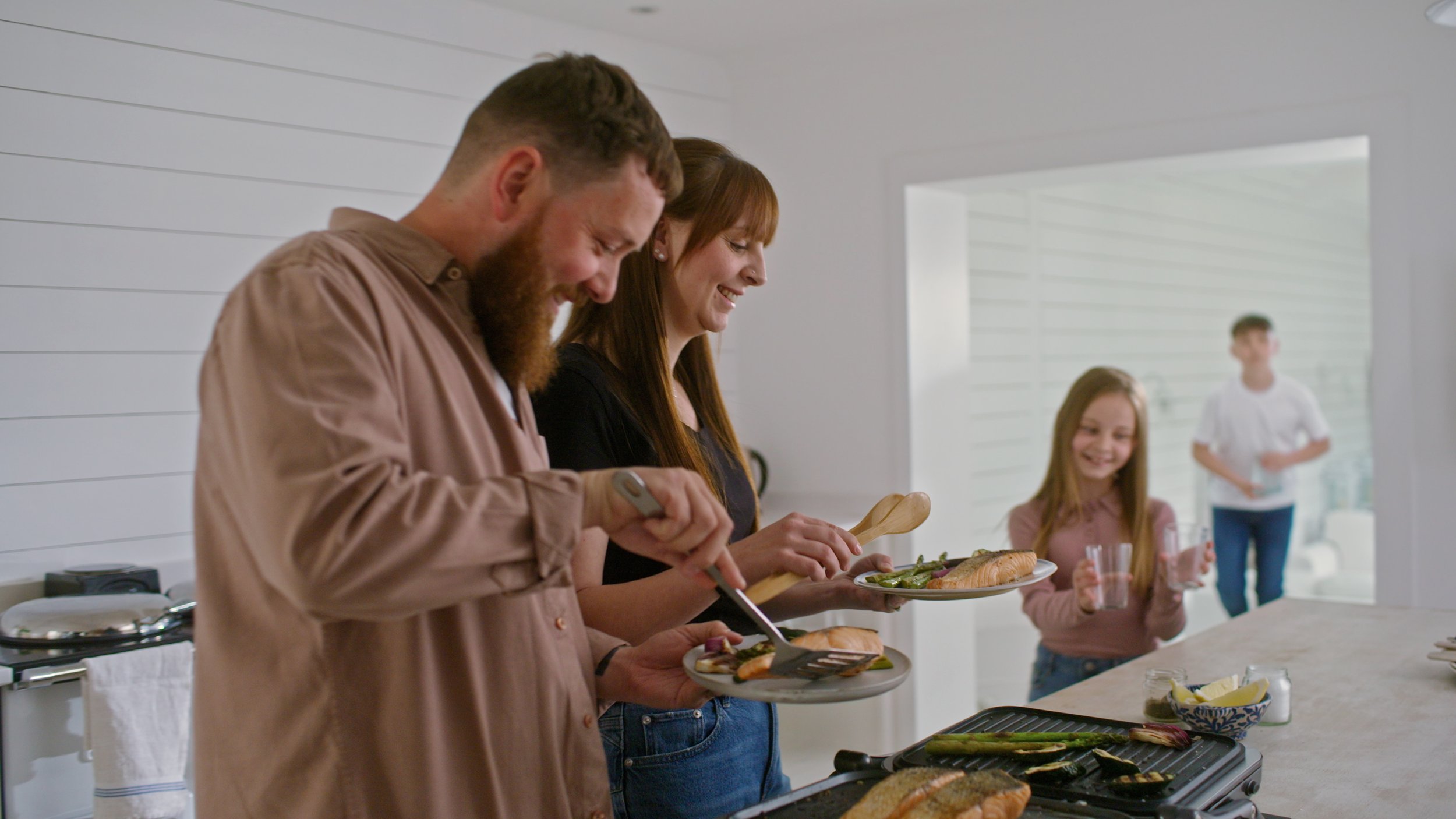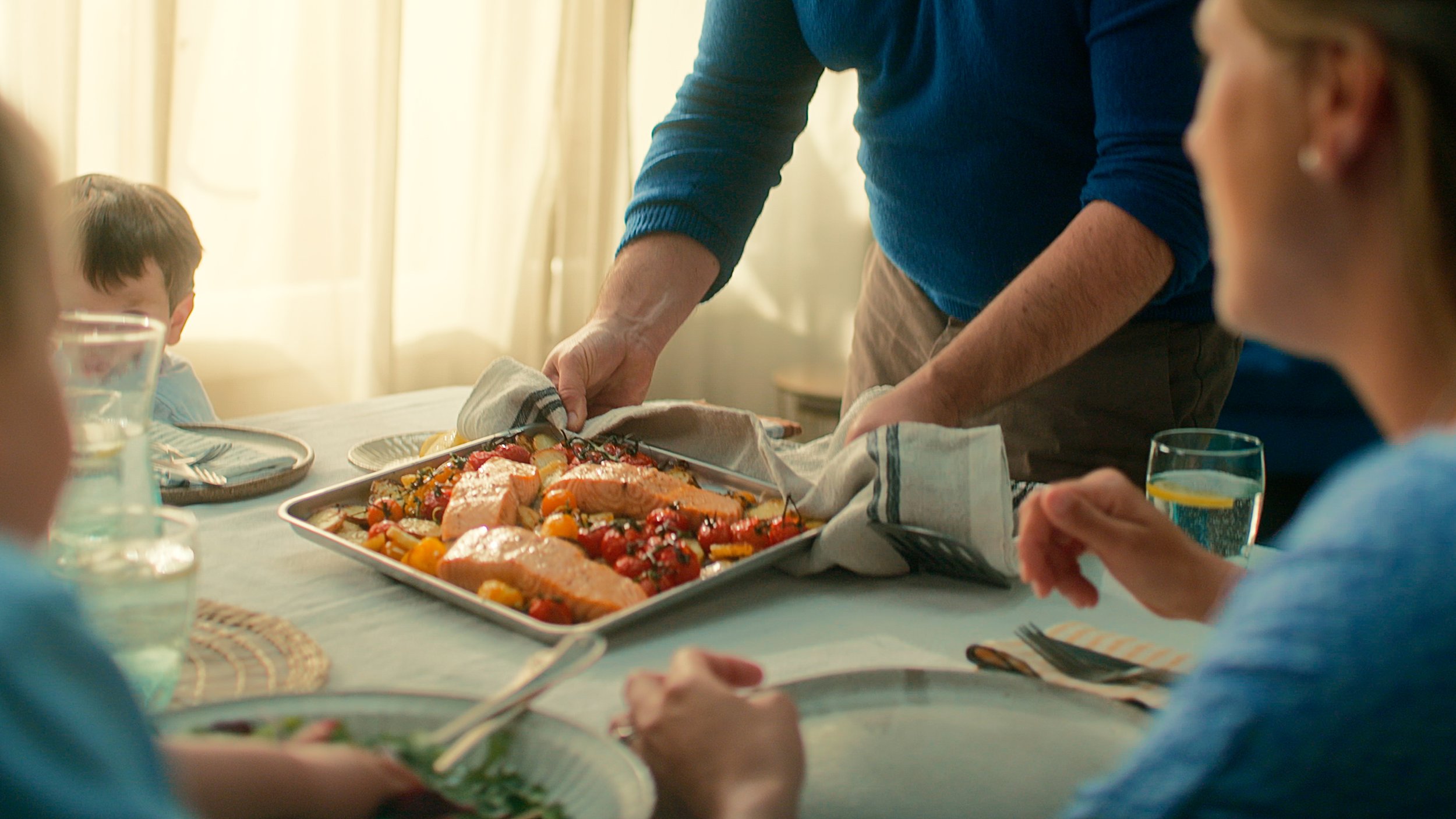Nowadays joins Auspicious
From sketch shows to Cannes wins, and now joining Auspicious. It’s been a ride, and it’s only getting bigger. For our clients and collaborators, it means more opportunities and more ambition behind every project.
In what’s very probably the biggest news we’ve ever shared here, we’re downright delighted to announce that Nowadays has been acquired by the Auspicious Group.
If you don’t know them yet, Auspicious are an absolute rocketship of a creative services group. In less than two years they’ve pulled together an eclectic crew of brilliantly complementary agencies - from US non-fiction specialists Blue Chalk Media to UK ad makers Studio Yes and the DBLX, specialists in digital transformation and people-first tech. All outstanding in their own fields, and now under one virtual roof.
Auspicious have already landed at number 7 in the EVCOM UK Top 50 so they’re not messing about. Exactly the kind of momentum we wanted to be a part of.
There’s history here too. We’ve known Auspicious co-CEO Barnaby Cook since we were all kicking about at Newcastle Uni getting up to all sorts of drama society shenanigans. Barnaby launched Casual Films at the same time we kicked off 3angrymen back in 2006, and we’ve been trading content production war stories ever since.
He even starred in our very first attempt at a “production”, a catastrophically underappreciated (mostly due to its remaining catastrophically unfinished) sketch show we filmed before we had any idea how to work a camera.
The rest of the Auspicious leadership team bring heavyweight experience of their own. Rachel Pendered and Mark Killick built Media Zoo into a Sunday Times Fast Track 100 company and PR Week’s fastest-growing agency. We’ve no doubt we’ll be learning a lot from them.
So what changes? Not the core of what we do. Nowadays will keep on Nowadays-ing, making films that matter for incredible charities, brands and organisations of all shapes and sizes.
Auspicious know what we’re good at and what we care about and want to make that the foundation of what comes next. It means greater reach, doors we couldn’t open on our own, and the kind of collaboration that comes from being part of a larger group.
For our clients, it means the same core team, the same approach - but with added firepower. More reach, more capabilities, and more confidence to take on bigger challenges together.
We’ve loved being our own blend of small and scrappy over the years, but in truth we really can’t wait to be working alongside all of the fantastic folk in the engine rooms of all our fellow Auspicious agencies.
Onwards.
Everyone's "Purpose-Driven" Now (But Are They Really?)
Every production company claims to be "purpose-driven" these days. It's the easiest thing in the world to say—slap it on your website, mention it in pitches, job done. But when organisations actually need someone to handle their most sensitive stories, the conversation gets a lot more specific. This month, we're sharing two films that prove the difference between talking about purpose and actually delivering it.
Every production company claims to be "purpose-driven" these days. It's the easiest thing in the world to say - slap it on your website, mention it in pitches, job done. But when charities actually need someone to handle their most sensitive stories, the conversation gets a lot more specific. This month, we're sharing two films that prove the difference between talking about purpose and actually delivering it.
Balancing Acts
Ask anyone who's worked in hospitality what their job involves, and you'll get the usual suspects: managing bookings, handling complaints, keeping the coffee flowing. You're forever spinning plates - sometimes literally - juggling a dozen moving parts while keeping customers happy.
But there's one more plate that matters more than most: helping keep children safe.
When the NSPCC launched their pilot programme for the hospitality sector, they needed more than just another animated explainer. They needed someone who understood that hospitality workers don't see themselves as part of child protection - and that's exactly the mindset this film had to change.
Working with animator Claire Pinegar (who also created our NSPCC Together for Childhood series), we walked a creative tightrope. Too clever with visual metaphors and you lose the message entirely. Too basic and you lose the audience before they've even started watching.
The solution was finding the right balance: adding just enough visual flair to keep people watching, while resisting the urge to overcomplicate things. Sometimes the most important creative decision is knowing what to leave out.
The animation became the gateway to a full safeguarding toolkit, proving that the hardest conversations often start with the simplest invitation: you're already good at looking after people, here's how to do a bit more.
When Timing is Everything
Three hours north of London, Michaela Williams unlocks the doors to Spring Bleau Café every other Saturday. What started as personal grief after her Nan Vanda's dementia diagnosis became something bigger - a space where tea, bingo, and unshakeable optimism make dementia feel a little less isolating.
When Dementia UK asked us to tell this story, the timing was brutal: filming would take place just weeks after Vanda's death. This is where years of experience matter more than any website copy ever could.
It meant countless conversations with Dementia UK to make sure we were doing right by Michaela. It meant a small, properly briefed crew who understood what they were walking into. It meant structuring interviews so we weren't hitting someone with their worst grief first thing in the morning.
Most importantly, it meant the difference between honouring and exploiting someone's memory. Vanda was a woman who inspired something full of energy and joy. The film had to reflect that - not lean into misery for emotional impact, but celebrate the community she'd helped create.
"Sometimes you feel like you are on your own," Michaela tells us. "But community is really important after a dementia diagnosis - because in the end, it's a community that holds you together, right?"







Why Experience Actually Matters When You’re Making Films That Matter
Strip away the surface details, and these are essentially telling a very similar story: people recognising they have power to help. The hospitality manager who notices something's not right. Michaela opening café doors every fortnight. Both choosing to step up and care a little more.
But getting those stories right? That takes more than good intentions and a nice website. It takes years of learning how to have difficult conversations, how to build trust with contributors, how to balance creative ambition with human sensitivity.
When charities vet production companies for projects like these, they're not looking at showreels. They're having conversations. They're asking about other initiatives beyond just making films. They're checking whether you actually understand what you're signing up for.
Both films are doing what good cause-driven content should do: starting conversations, shifting perspectives, and connecting people to real support. Because the most important stories aren't about grand gestures - they're about ordinary people choosing to care, one conversation at a time.
And in a world where everyone's suddenly "purpose-driven," that distinction matters more than ever.
You can watch both films on our website, here and here. And if either story moves you to action, that's exactly what we hoped for.
Still Climbing: Nowadays in the UK Top 50 2025
We’ve climbed to No.27 in the UK Top 50 2025—an industry ranking that tracks the best in brand and corporate film. A strong year, and a meaningful marker.
If you’d told us a few years ago that we’d be sharing a list with some of the biggest names in UK video production, we probably would’ve smiled politely, mumbled something about “just keeping the lights on,” and gone back to staring down another edit marked v33_final_FINAL.
But here we are—ranked No.27 in the newly released UK Top 50 2025, up ten places since last time.
For the uninitiated, the UK Top 50 is an annual report from Moving Image and EVCOM, recognising the top-performing production companies working in corporate film and branded video content. They crunch the numbers (over 60 data points, no less) to benchmark companies across revenue, peer respect, awards and volume of output—offering a rare data-led snapshot of the UK video production industry.
So yes, we’re delighted to be included again—and even better to be moving up the list in what’s been a challenging year across the creative industries.
Peer pressure (the good kind)
One thing we particularly rate about this list is the inclusion of the Peer Poll—a chance for other producers to highlight the companies they admire. This year, we landed in the top tier for peer recognition, which, honestly, made us feel all warm and fuzzy inside.
We also featured in the top tier of the UK film awards rankings, alongside some brilliant names. If you’ve seen Waiting List—our short film that picked up the Grand Prix in Cannes—or our recent shortlistings at the EVCOM Clarions, you’ll know what a standout year it’s been creatively, too.
(If not—catch up on Waiting List here and prepare to feel feelings.)
A bit of perspective
At Nowadays, we’ve always believed there’s space to raise the bar in corporate filmmaking, but that’s far easier said than done. The reality is long days, tight turnarounds, endless rounds of feedback, and occasionally filming in a basement meeting room because “it’s the only one with decent lighting.”
But we love this work. We love the stories, the people, and the impact a well-crafted brand film or cause-driven campaign can make—when it’s done with attention, empathy and creative ambition.
To be recognised for that—not just by clients or juries, but by our peers in the UK production industry—means a lot.
You can read the full UK Top 50 2025 report here.
Reel Talk At Nowadays
As we hurtle bravely into 2025 and release our latest showreel, we take a moment to ask - what makes a showreel worth showing?
In 18 years of producing films, we’ve only made 6 distinct showreels, with minor iterations between these. Showreels are big endeavours for us, they always take waaay longer than we expect them to, and we have a track-record of driving our editors to distraction with endless failed experiments, changes of heart and differences of opinion.
But we make no apology, we think showreels really matter. And whenever we create one we know we’re potentially going to be sat in front of it for hundreds of meetings, so we want to get it right.
At our Ask Away Thursday events we’ve often been asked what we think constitutes a “good” showreel, what elevates it from a cheap and easy ‘best-of’ collection, to a lovingly curated compilation tape you can be really proud of.
STRIKE A POSE
We start thinking about a showreel by asking ourselves what we want to say about the company - what’s our point of difference and how do we communicate that? Think of the most important people who will see your showreel, and ask yourself what you want them to think about you as the last few frames fade to black. And that shouldn’t just be “wow, these guys make a variety of high quality work”.
In a world where it is increasingly easy to capture a great looking, high quality shot (not to mention the looming possibility that we’ll be able to generate them out of thin air via AI) - you need to express what sets you apart as a filmmaker.
In our previous showreel we wanted to emphasise that we tell stories with nuance and sensitivity at their heart. We intentionally shifted away from doing anything too in-yer-face or bombastic, preferring to highlight longer, subtler moments and use a music track that had a gentle, ethereal quality. And time and again that showreel set us up so well to talk about the things we really care about as a company.
SET LIMITATIONS
One big debate we’ll always have is how far into the archives we will allow ourselves to reach for shots. It might be that you’ve had a dry couple of years since you last cut a reel so there can be a very real temptation to go back to those tried and tested shots you loved way back when. We tend to set ourselves the target of only working with shots from the past 3 years for example.
This is a great way to start, it will give you a backbone of an edit that necessarily feels new.
If you’re us, you will find it hard to stick to this rule. But remember this is your showreel, most people won’t compare it to an old one - and if you’re happy sitting in front of a few of those older shots then knock yourself out, you’re probably attached to them for good reason.
The other age-old question is how long your showreel should be. The truth is it doesn’t matter that much, or rather it can be as long as it makes sense for the shots you use. Even so, it can be helpful to give yourself an arbitrary target, 60 seconds for example, and do your best to stick to it. This forces you to make tough decisions and kill a few darlings. In the end if you want to break your self-imposed restriction then of course you can, you make the rules here.
We think this is the oldest surviving shot in the reel
AVOID SHOWREEL MUSIC
The first task we set our editors is to go looking for music. In a first round we usually plop a bunch of tracks on a timeline with a mess of shots that we’ve just chucked down with very little thought (sometimes we just use the old showreel). This way you can quite quickly get a sense of what might work with your shots and, perhaps more importantly, what definitely won’t.
One thing we actively avoid is anything too showreel-y sounding, anything so neutral and non-committal that any production company could slap atop their work. These are easy options and again, they don’t say anything about you, so using them is to miss an opportunity.
For us, it’s about digging deeper and trying genres that you wouldn’t usually go hunting through. How many showreels have you seen that feature minimal or acoustic or traditional instrumentation? Or rap, or any lyrics for that matter? Very few I’m guessing. Why not steer away from the same old middle-of-the-road inoffensive electronica and see what your work feels like when set to jazz?
VARIATION, VARIATION, VARIATION
This sounds obvious - it’s a showreel, of course you’re going to want to include a variety of shots. But that is not where the variation should end, you also want your edit to vary. You should look to shift the pace and tone of your showreel, so that it undulates and feels like several distinct parts of a story, not just a one-note tipping-out of one shot after another after another.
Why do this? Well for starters it makes the showreel a whole lot less dull. But more importantly it subtly shows off your (or your company’s) ability to edit like a true storyteller. So try intentionally crafting some contrast - some peaks and valleys, some strikes and some gutters, along the way.
In our latest showreel we wanted to highlight emotional performance over action. So at about the minute mark there is a very simple but affecting close-up on an actor doing next to nothing, and we let that shot sit for a whole 5 seconds before we ramp up the pace again for an energetic run-in to the climax of the reel. There are 86 shots in the showreel in total, averaging about 1 second each - to hand over five times that much to one shot says something to the viewer.
GENERATE YOUR OWN SHIT
Way, way, way back in the day (possibly even showreel #1), we faced the ultimate challenge - we didn’t have nearly enough footage to put together a credible showreel. Like, not even close. But being the little scamps we were back then, we didn’t let that get in the way.
Instead we invented our very own shoot and spent a week shooting a bunch of shots around London. We then got a mate to create some custom animation to layer over the top. In truth, these were probably the best bits of that showreel, which should be no surprise because we had complete control and therefore no excuses.
So if you’re a little light on material, don’t sit around getting frustrated with your lot, go out and create some of your own content - it doesn’t need to take long or cost much. And, dare we say it, you could even use AI to generate some shots if that’s something you’re interested in. (Btw, if you do go down that route, please make sure you mark it as AI generated - not only is that ethically the right thing to do, it’s a potential selling point - it shows clients another skillset that you possess).
A couple of clips we created (with a lot of help - shout out to Lukas) for our very first showreel
DON’T JUST SET IT AND FORGET IT
Unlike much of your client work, your showreel is allowed to be a living edit that evolves over time. So even after you’ve released it don’t miss the opportunity to make alterations after you’ve seen it playing in the big bad world of public opinion.
If you get the opportunity to have it play out, in creds meetings, or with your industry pals in the pub, or on the family telly at Christmas, pay close attention to how the mood in the room shifts as your reel plays out. It’s an exposing, vulnerable moment, and this time you can’t blame the bum-notes and poor choices on a client’s decision making (as if we ever would!).
So if there’s something not quite perfect, if there’s a perceptible lull, or a missed opportunity to generate armfuls of goosebumps, you can just go back into the edit, move things about, re-export and replace the file on Vimeo - jobs a good’un. And nobody will know (or care) that you’ve been tinkering, it will just be a little more effective for the next set of eyes to land on it.
That’s probably plenty to ponder. Now, dig out those archive drives and get started on your next masterpiece.
Oh, and here’s our brand new showreel, hope you like it!
You Can’t Direct Dementia
Hi, Mike here,
As a director, I’ve always gone into projects with a clear vision. My role has typically been to guide the story, making sure every shot, every angle, every word serves that vision. Filmmaking is a craft that’s often about control—about directing outcomes. But my recent project with Dementia UK challenged this foundation in ways I hadn’t anticipated. This project, focusing on the raw realities of dementia, taught me that sometimes, the most powerful stories don’t follow a plan. You can’t direct dementia; instead, you have to be open to the story it wants to tell.
From the very beginning, I knew that we needed to approach these films with sensitivity and honour the dignity of the stories being told. But I underestimated what that would entail. When one of our contributors felt uncomfortable with an initial recce, we had to forgo our usual approach to planning. Without the luxury of mapping out locations, angles, or setups, we walked into unknown territory. This wasn’t just a logistical change to one contributor's story; it forced me to abandon my usual preconceptions and reminded me to stay fully present, adapting in real-time to what every contributor was ready to share.




Each person’s story of dementia is unique. It’s a deeply personal journey, and no two experiences are alike. For this project creating something “real and raw” meant being willing to accept what comes, as it comes.
During my research, I read an account from a woman who described dementia as “squeezing the life out of your loved one.” Her honesty underscored something that I needed to face in my work: there’s no room for softening the reality of this illness. To convey the pain, anger, and helplessness that families endure, we needed to show the truth. In three of the four stories, the focus naturally shifted to caregivers, revealing the complex, often heartbreaking transformations in relationships that dementia brings. By focusing on these family members—the ones watching and supporting—we were able to show the full emotional toll of dementia in an honest and vulnerable way.
Just as I thought I’d grasped what this project was about, I met Gail Gregory, our final contributor. Gail lives with early-onset dementia, and her approach to her diagnosis completely upended my perspective once again. Diagnosed at 54 and given seven years to live, she is now in her fifth year and has chosen to embrace this stage of her life with positivity and gratitude. She told me, “I see my dementia as a gift... It's given me things I would have never even thought of doing.”
Gail’s story showed that while dementia is often framed as a narrative of loss, it can also be a story about embracing life and creating joy, even in the face of an inevitable outcome. We needed to broaden our understanding of dementia, to challenge the stereotypes that cast it solely in terms of despair. With Gail, we made a film that was as much about living as it was about illness, about strength in the face of change. Her resilience showed us that part of honouring these stories means not only acknowledging the painful realities of dementia but also leaving room for hope, empowerment, and choice.
Ultimately, I measure the success of this project by the reactions of the families who shared their lives with us. A quick look at my socials will tell you that ‘selfies’ aren’t really my bag, but I was genuinely moved when each contributor asked for a group photo after filming. That small gesture spoke volumes about the environment we created together—a space built on trust and mutual respect.
In making these films,the real challenge isn’t just in capturing the footage or crafting the story; it’s in listening, in adapting, and in giving each person the agency to decide how they want their story to be told. Sometimes that means letting them say “no,” being clear about what we’re asking, and, above all, being willing to put the camera down when it’s needed.
These are the projects that unsettle you in the best way. They’re the ones that make you nervous during filming and hesitant to hit “publish” on the final edit. But they’re also the projects that make you a better storyteller. They remind you that sometimes, the most important stories can’t be directed—they can only be witnessed.
If you haven’t already you can watch Gail’s and Mahersh’s films here
The Best of the Best of Corporate films (according to us)
As you’ll have no doubt been made aware by our elite social media team - we got to attend the Cannes Corporate Media & TV Awards a couple of weeks back, where we were awarded the prestigious White Dolphin. Somewhat embarrassingly, because of a busy few days ahead of the event we hadn’t actually had a chance to watch many of the films nominated alongside our own, something we’ve been busy remedying back at Nowadays HQ.
And since we’ve been so impressed with the overall standard of work (and let’s be honest, that’s not always the case in the corporate film world), we thought we’d pull out a few highlights we thought deserve an additional round of virtual applause.
Twisted Paradise | Stereoscreen GmbH for Schaeffler Technologies AG
Anyone who has tried surfing for an hour knows how knackering paddling out and getting on a board can be, even in the piddliest of piddly waves. That’s what makes this epic film about big wave surfer Sebastian Steudtner so bloody impressive. This is how you do branded content right - make fascinating or impressive subject matter the hero and don’t overtly impose the product or slather on heavy handed messaging.
History of Tech | Plastic Pictures for HSBC
Absolutely bustling with personality with hardly a human in sight. Have we seen this sort of highly stylised, Wes Anderson inspired nostalgia-thon, two or three hundred times already? Sure. But when it’s done this well, with such well curated art direction, witty visual storytelling and deft sound design, it still makes for a very entertaining three and a bit minutes of corporate film. No surprise it took home Gold in the inspiringly titled Informational Films and Explanatory Videos category.
Shaping the Future of Teaching Together | Seed Audio-Visual Communication AG for University of Zurich
This picked up Silver for Best Internal Communication and though understated compared to a lot of the mega productions, we think this is a really effective film. What’s impressive is that what begins as a slightly underwhelming visual device - person + chair + white-out studio - manages to keep evolving and finding new ways to get key points across in entertaining fashion.
Don't be sad | STUIQ AG for Swiss Youth Hostels
Somehow, even though you know very early on where this advert is going, it doesn’t stop being an enjoyable watch. Partly this is down to some great casting, but there’s a lot of filmmaking craft at play too. The key here is simplicity - find that one thing you want to say, stick to your guns and don’t get distracted, and have fun with it.
Floating Hospital | Orca & Aura Films
This film competed with us (and won Silver) in the Fundraising & Non-Profit category and it’s an absolute stunner - one of our favourites from the show. From the first few seconds to the last, the atmosphere created by the cinematography is so beautifully balanced - contrasting almost surreal levels of isolation with moments of palpable human connection.
That’s probably more than enough for you to be getting on with. But believe us, this is very much the tip of the iceberg. If you do want to go browsing through all of the other brilliant film entries, you can do that on the Cannes Corporate Media & TV website.
Massive Win In Cannes For Nowadays
Our Managing Director Thom has just got back from an eventful trip to Cannes where we were awarded the Grand Prix, the coveted White Dolphin for best film at Cannes Corporate Media & TV Awards 2024, for Waiting List, a Nowadays Original written and directed by Phoebe Brooks.
Well, what a trip that turned out to be!
Touching down in an extremely wet and moody Nice a few days ago, we had no idea quite how big an evening we were in for. We’d flown down for the Cannes Corporate Media & TV Awards, otherwise known as The Dolphins, named after the staggeringly weighty, impressively shiny trophies that they hand out to the great and the good of the corporate film and TV making world.
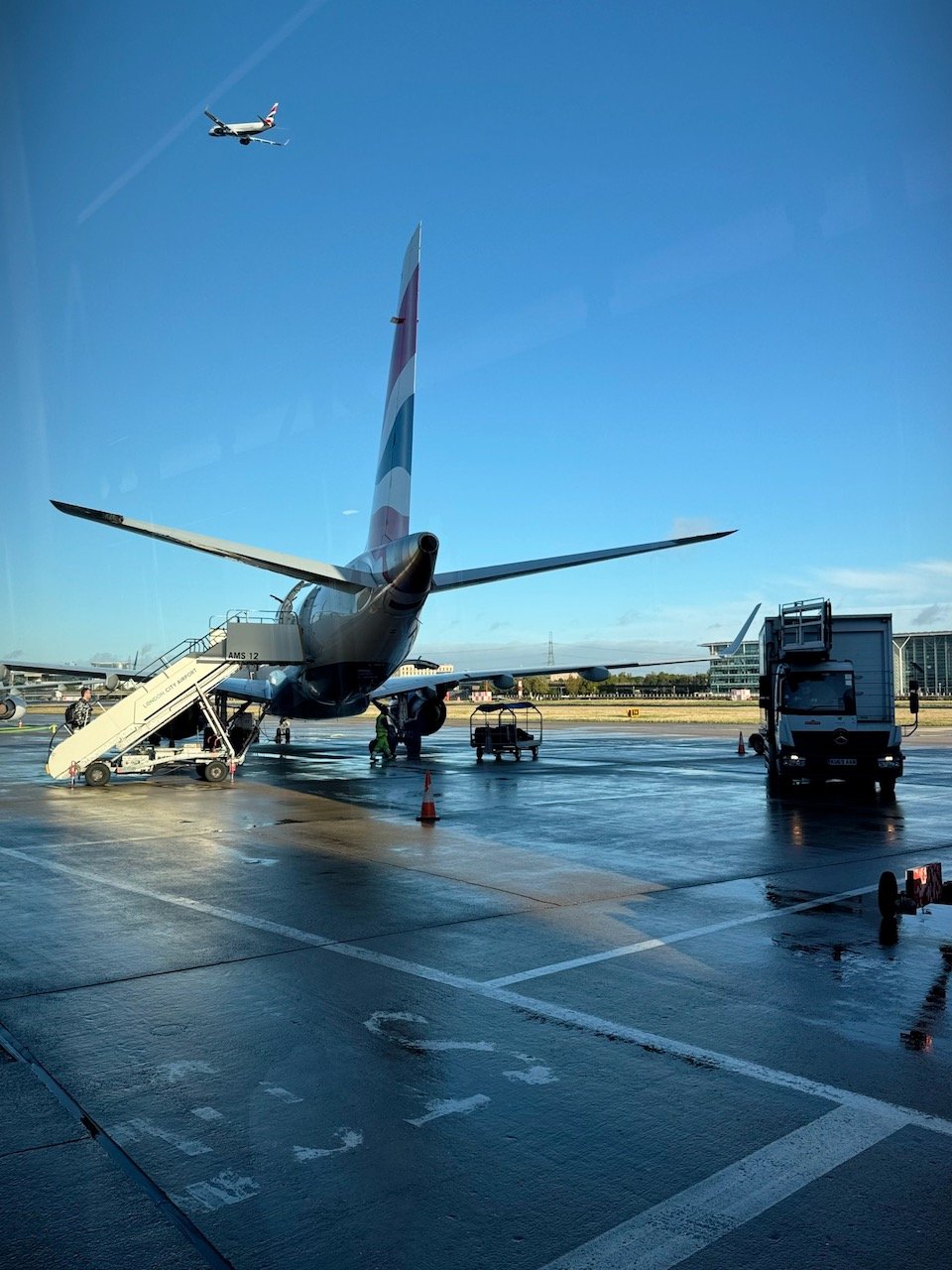
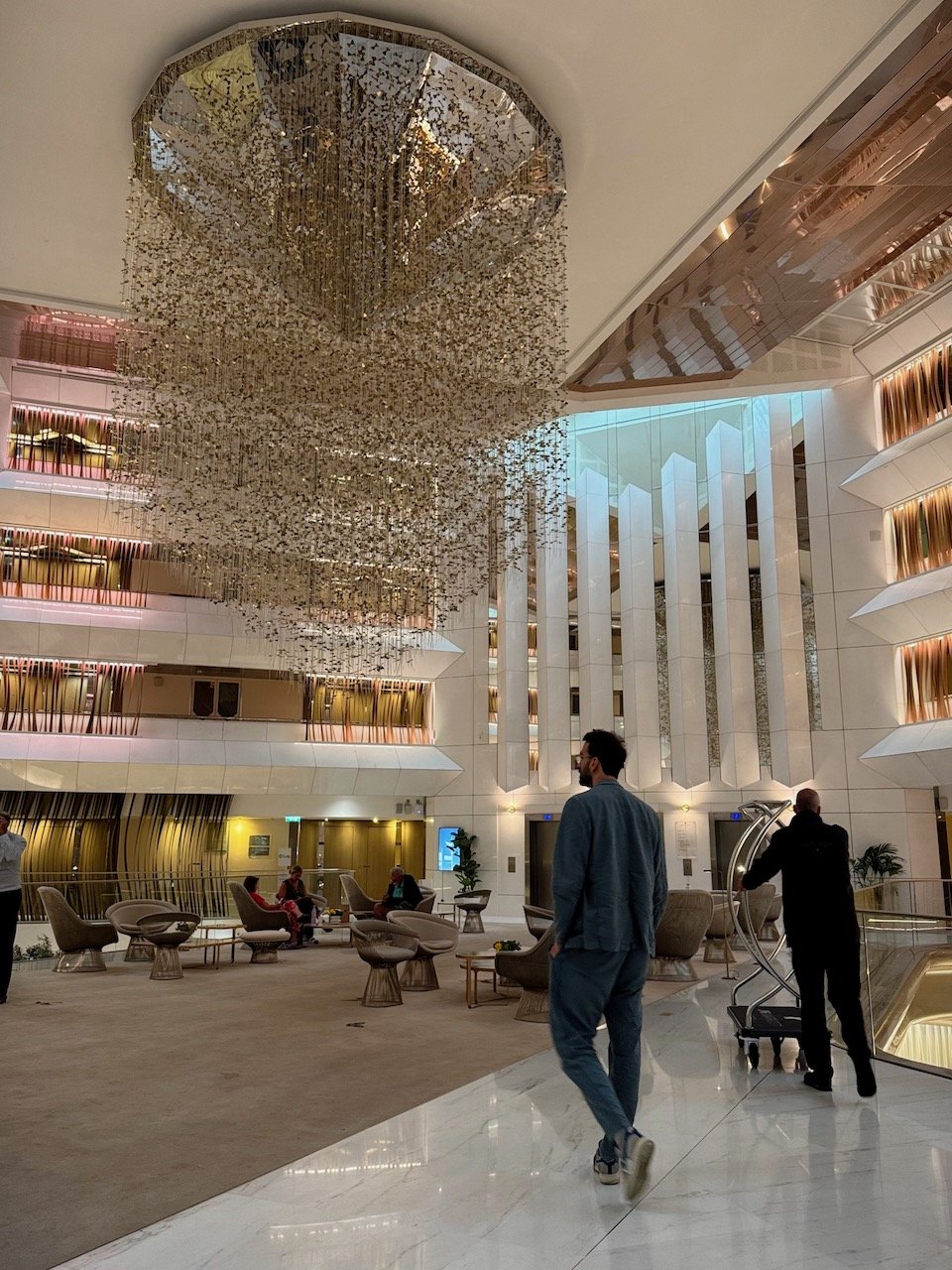
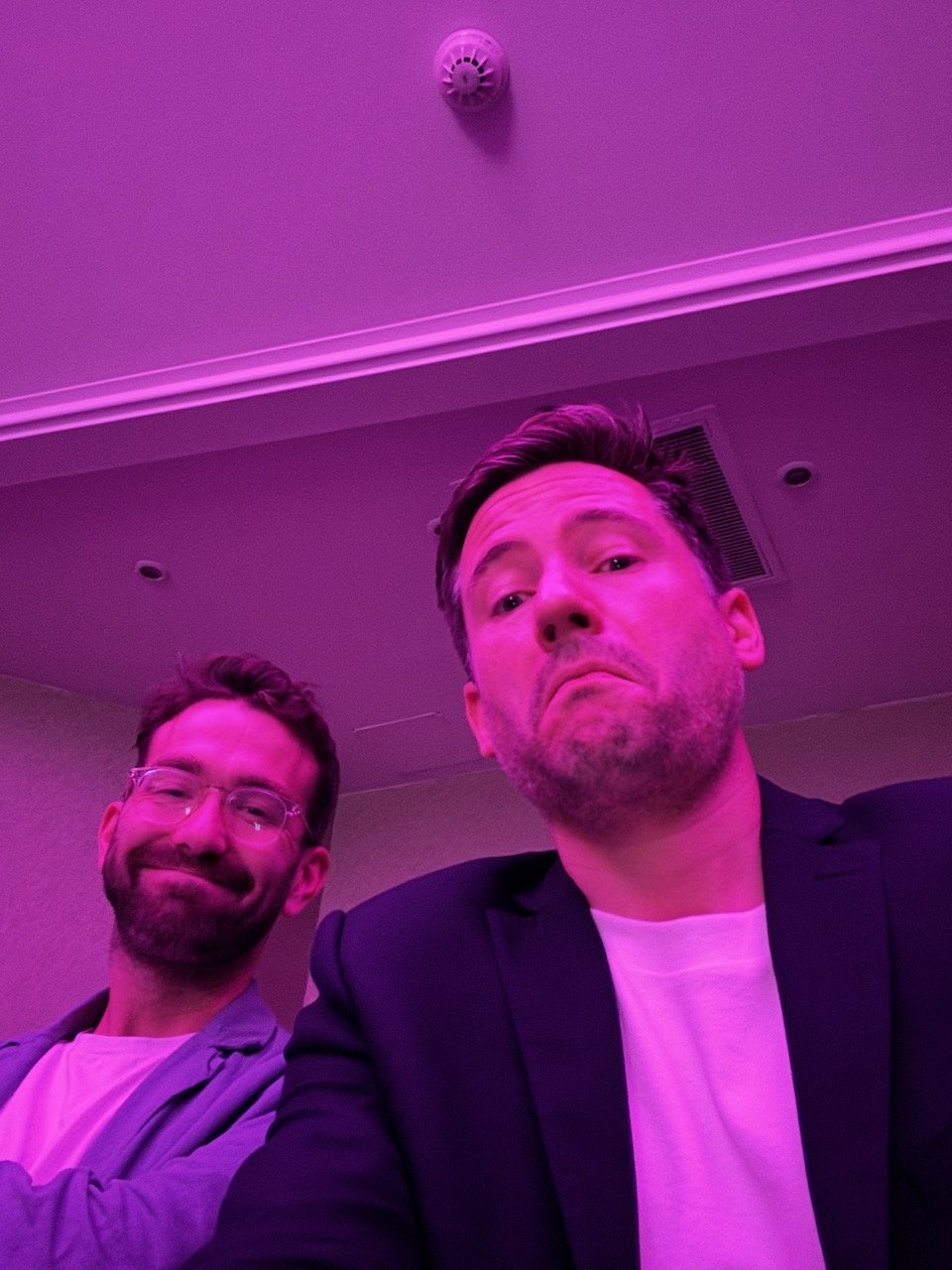
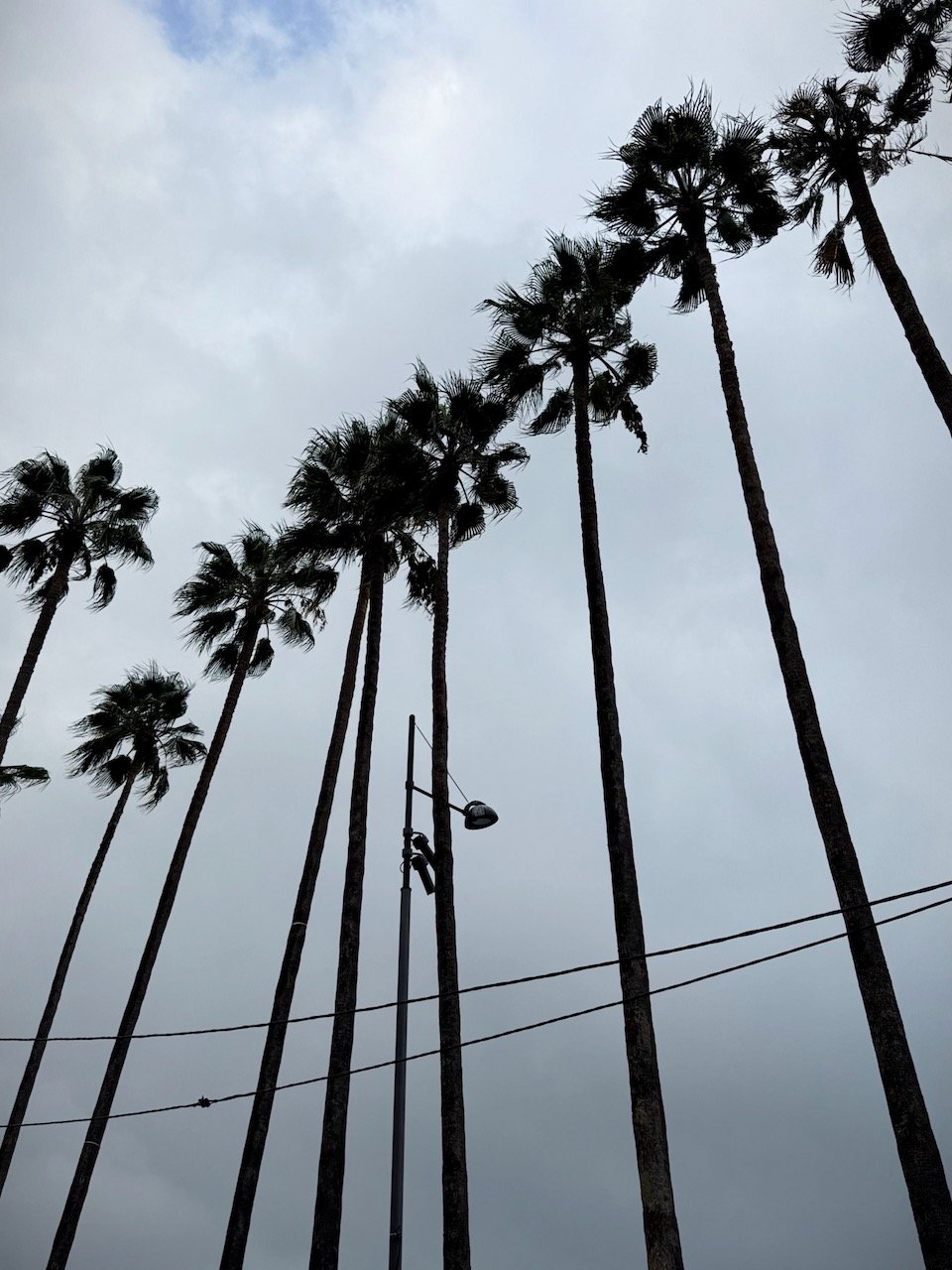

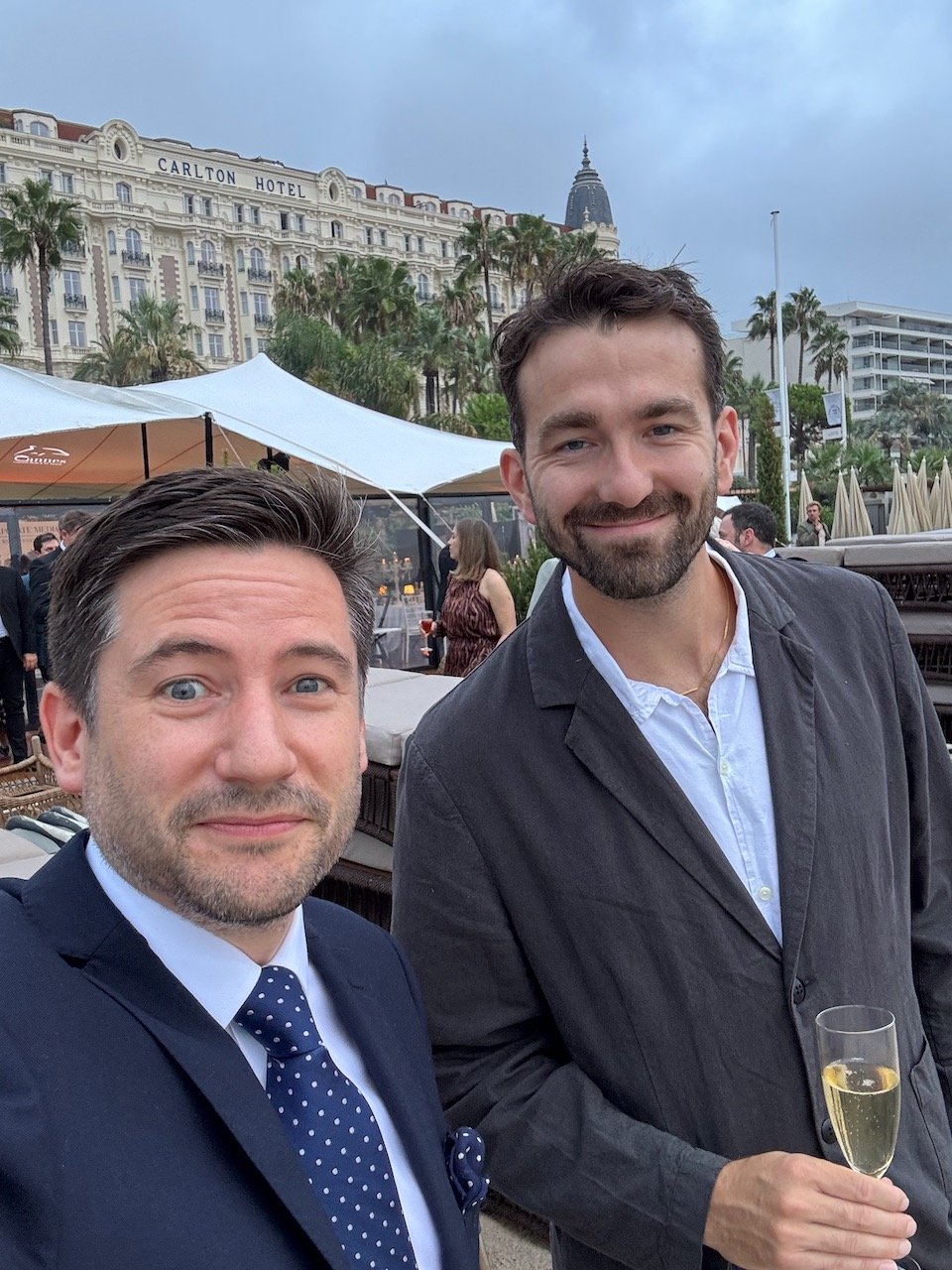
Over the past decade or so we’ve been up for Dolphins several times, and we’ve been lucky enough to win quite a few - for Best Branded Content and Best Corporate Image films among others - but this year was a bit of a special one.
This year our film Waiting List was nominated and awarded gold in the Best Fundraising/Non-Profit category, an amazing achievement in and of itself (check out some of the brilliant films we were up against - stunning films about important subjects, like floating hospitals in Indonesia and isolation in the deaf communities of China).
But it turns out that wasn’t the end of the story. Just as the ceremony was drawing to a close, as the fatigue from clapping so much incredible work was beginning to settle in, we were equal parts stunned and delighted to be called to the stage once more.
Out of nearly 800 entries into the awards this year, Waiting List had been selected for the Grand Prix, the White Dolphin, which according to the blurb - “honors the most outstanding production in the categories of “Corporate Media” and “Documentaries”.”
It was quite a moment.
And then we had to give a little speech and I’m going to try to replicate a little of what we said there, here (and my memory is definitely a little hazy so bear with me) is the gist of it:
We love this film, and not just because it is a brilliant bit of filmmaking in its own right.
It’s an important film for us because it shows what can be achieved when you trust your teams, the filmmakers you sit amongst every day, to tell the stories they really want to tell. This film simply wouldn’t have happened without the talent and perseverance of Phoebe Brooks, who not only wrote and directed it, but who really took the time to sell us on the idea in the first place.
Making passion projects is no walk in the park, there were plenty of challenges, arguments, pushes and pulls throughout the process, and the team had to give up a massive amount of their free time, sweating every detail along the way. But Phoebe did such a phenomenal job of convincing us all that this story needed to be told, of making everyone feel personally invested, there was never much question that we would make it happen one way or another.
So when your teams show you that they’re really ready to go to bat to make a film happen, you should try to meet that passion with trust and backing where you can.
I think it was something like that. Probably not quite so coherent, probably with a good deal of umming, erring and stuttering in there. But that was what was swirling around in my head at least.
It was so lovely to be present at the show - it was honestly a little overwhelming how many fellow filmmakers, production companies, agencies and even clients, had taken the time to watch the film ahead of time, and who came up to say nice things about it on the night.
And yes, there is definitely an irony that the best-in-show award, at a ceremony celebrating the world’s finest corporate films, was awarded to a project that was self-initiated, self-funded and, in the end, gifted to a charity client. There’s probably a lesson in there somewhere. Probably.
And so, onto a big list of thanks. Thanks to everyone who worked on the film: everyone in-house who gave up their evenings and weekends, especially Phoebe, Jenny Garrett, Charlie Maxwell and Ben Harding. Thanks to the crew - there’s too many to list here but I’m told their unwavering commitment to the cause made the shoot a special place to be. Thanks to Director of Photography Charles Mori, who has made two Nowadays Originals look absolutely outstanding now. Thanks to the brilliant cast who deservedly garner so much praise from audiences who’ve seen it, especially our lead Mary Malone, who’s undoubtedly destined for very great things. Thanks to Karol Cybulski at CHEAT and Matt Valentine for making it look and sound even better in post. And thanks to Cannes Corporate Awards, for celebrating the film and having us along to their wonderful event.
The Importance of Having Pre-Calls
Hi, Mike here, in-house director at Nowadays.
Since the dawn of time (well, 2012), the team at Nowadays have been making films for Scouts – from big impressive (not to mention award-winning) brand positioning pieces, to lovely little animations – so when I was entrusted with leading this years campaign, the first question I asked myself was:
What can I bring to the table?
Over the years, for me to connect with the work and do a great job, I need two things. First and foremost, a clear goal. Scouts are a charity, they continually need volunteers to be able to provide opportunities for children across the UK and right now they are in urgent need of adults for their ‘Explorer’ groups (the 14-18 years old).
Awesome! Clear goal in sight! Next…
To find a way into a project I also look for a hook, a way for me to connect with or understand the story on a personal level. I'm not a Scout, I've never been to Scouts, and to be honest, I’m really time-poor. So for me, I wanted to understand what would compel someone to give up their precious free time to get out there and volunteer. However, discovering this answer while making the film is not an option: in order to control my shoot I need to get to know my contributers…
For those not in the know, a pre-call is an informal chat with your contributor ahead of the shoot, and truth be told, I used to despise these. When I first started out I had an (ill-informed) romantic image of the doc-director dropped from a helicopter straight into a shoot, with nothing but their guile, their wits, and a trusty DoP to succeed.
With experience, I’ve come to understand that, in fact, the pre-call is essential to the success of my projects. It’s a great way to ease someone into the process of filming; where you can be transparent about crew, equipment, and your demands on their time; and encourage your contributors to ask any questions that help demystify things for them.
Most importantly, with just a few searching questions, the pre-call is where you begin to shape your narrative…
When I’m in pre-production, and especially in pre-calls, I like to channel my inner Theodore Donald Kerabatsos (Donny from the Big Lebowski) - “like a child who wanders into the middle of a movie and wants to know... [what’s going on].”
I’ve found this wide-eyed approach extremely helpful when talking to contributors for the first time. Asking the obvious questions and taking people back to the beginning of their journeys is a great way to understand what they can give me during a shoot; are they energetic, excitable, open, reflective? Before you know it, the person you’ve only just met is confiding that, “all through my childhood I struggled with my confidence… Scouts gave me an identity and a place.”
This is the kind of testimony that you can build a film around.
When another contributor later explains that being a Scout leader, “is a privileged position; you’re trying to help kids who might be really struggling in lots of ways, and actually, you can really help.” An idea begins to form that Scouts is a safe space, and maybe this series of films can celebrate that.
The more you can dig away and break down what someone does, the more you begin to understand the visual possibilities of the shoot, the scenes you might want to see. Here are a few examples of the insight as inspiration for the shots…
Anes’ Story: the Neckerchief Game
“Whenever I feel like I'm too busy, all it takes is one smile from an Explorer to make it worth all the sweat”.
When Anes shared this with me, I knew we needed a scene that would encapsulate the bond within his group as naturally as possible; but most importantly, a moment of genuine connection that never fails to make him smile.
Victoria’s Story: the Bonfire
“I'm always surprised how they embrace each other's weirdnesses. They're not afraid to be themselves, and they love being together.”
Going back to this idea of safe spaces, the lighting of the bonfire became this moment of total liberation, where we could capture Victoria’s Explorers without inhibition. Once in the edit, we knew that letting these visuals speak for themselves would be more powerful and emotive than anything she could say.
Zahir’s Story
“Historically, Scouts was perceived as being a very white, Christian organisation. There weren't many people of colour.”
Hopefully this one speaks for itself. Profiling the groundbreaking work of the Muslim Scout Fellowship during their annual ‘Iftar Under the Stars’ event allowed us to send a powerful message that Scouting is for everyone, regardless of race, gender, or class.
If you haven’t already you can watch all three films here
What Momentum Taught Me About Filmmaking
Hello again - it’s Sandy, director at Nowadays. You might have noticed we’ve dropped our third film for Impetus, and this time it’s really packing a punch as we celebrate the last 21 years of impact they’ve had on millions of young people’s lives.
The theme of this film is ‘momentum’ - the idea that things keep moving forward, whether its young people’s futures, or Impetus’ future endeavours. But what I didn’t realise was how much momentum came into the process of making the film as well. Here’s a few things that working with ‘momentum’ taught me, and how it helped me understand the filmmaking process all over again.
Rolling with the punches
Making this film taught me to be more spontaneous and loose with my directing style. As someone who so dearly wishes to control every aspect of a situation (my mantra is “fail to prepare, prepare to fail”), I have to say, sometimes it’s not possible. For example, we had planned a gym/training montage scene that was meant to be high energy and fast paced. Except when we got to the location, there wasn’t a gym, just a very empty sports hall.
So what do we do? What we all attempted to do at least once during the pandemic - a very manic HIIT workout. Of course doing a workout alone and in front of the camera isn’t the most comfortable thing to do, so I roped myself and production assistant Jacob into getting a workout ourselves.
The result? Movement and momentum that still got across the energy we wanted this film to have + a couple of sweaty crew members.
(By the way, if you need proof I was involved in that workout - you can see for yourself in our BTS film we made alongside 21 Years of Impact below)
Good momentum, bad momentum
Ok, so momentum is what keeps things moving, we know that. But I need to point out that this can be good or bad. Instead of feeling like you’re riding a wave of productivity, there is also another side of momentum; the kind that can frazzle you, uses up all your energy, the kind that makes you forget to eat, and narrows your focus so much that there’s less room to explore and try new things - I call it ‘bad momentum’.
This is where it’s helpful to have someone on set that can look out for when this is happening. If it weren’t for my producer, Charlie, scolding me on day 1 of the shoot, telling me to drink water and grab a bite to eat, I’m sure I’d have forgotten completely. It was a good reminder that it's okay to chill out a bit. Reset. Take a second to step back, and take a look at the whole picture before jumping back in.
Everyone on board
The momentum train is pulling out of the station, but wait a second, your whole cast and crew are left on the platform - this can be a recipe for disaster.
Making sure that everyone else is along for the ride with you is incredibly important. For this film, the dialogue moved through six different characters, so it was vital that they understood the wider context and what role they were playing in it.
The same principle can be applied to the crew as well. Even something as small as checking in with each other throughout the shoot is very beneficial. Whether that’s about script, schedule, breaks, or general mood. Not only does this actually instil me with more confidence, but it sets a more harmonious pace for the process in general, that way no one’s left behind or out of the loop.
Full disclosure, Impetus was my first charity campaign film for Nowadays, and the first time I had the chance to work on something that pushed me out of my comfort zone as a director. I wouldn’t be writing this post if I didn’t think I had something to say about the process, and what it really taught me. Our end line for the film was, “I’m just getting started” - written to reflect the fact that both Impetus and our cast of young people have so much more to come in the future. As always, there’s some truth in the art - I’m also ‘just getting started’.
Time to end the wait
After months of work, we are excited to release the newest Nowadays passion project, Waiting List, into the world.
Written and directed by Phoebe Brooks, Waiting List is a narrative about Jenny, a young trans woman bravely taking the first steps in seeking gender affirming healthcare, only to be swallowed up by the system and the future that she could have had, ripped out from underneath her.
Our film is highlighting the very real problem trans people are facing every day in the U.K. According to a recent BBC report, the average waiting time for an initial consultation for gender affirming medicine is around 3 - 7 years. The reality of this is tens of thousands of people are being denied the opportunity to live their lives authentically and as a result of this, too many trans lives are lost because they’ve been waiting so long for care.
Jenny, played by Mary Malone, is a real talent - as you will witness in the film, she has a fantastic ability to convey very intense emotions with incredible subtlety, and we were grateful to be able to cast her as our lead. You’ll be seeing a lot more of Mary in the future - we’ve heard through the grapevine she’s been cast in the end-of-year Doctor Who special. We can’t wait to see more from her!
Mary was supported by accomplished actress, Lucy Russell, who played Dr Hardy. Lucy will be a familiar face to some, having recently starred in ITV’s mini series, A Spy Among Friends, and Disney’s Andor. Lucy brought a complex humanity to bear in the form of a medical professional who is outwardly helpful but represents a dehumanising system. A special thank you to Tom Payne for casting.
The whole film was shot over a single weekend. Our team was composed of a collection of industry professionals, as well as work colleagues, friends, and family all invested in bringing this film to life. We jumped around various locations in North and East London - from a doctors office, to a queer club, even to the directors own bedroom (a bit of set direction, and throwing up a temporary wallpaper and it was basically unrecognisable!).
Long time friends of Nowadays - DoP Charles Mori and gaffer Stephen Allwright - worked hard to make every frame rich and beautiful, and their expertise on set was greatly appreciated. Matt Valentine was our maestro - giving us the music and sound mix for the film, Karol at CHEAT finished it off with an beautiful grade, and the whole shoot was meticulously planned and pulled off by producer, Jenny Garrett. A special mention to Dalston Superstore, the thriving east London queer club that has been looking after the LGBTQ+ community since 2008. They gave us their space to use free of charge for this film, which was used during the dance club scenes.
Waiting List was made in collaboration with the charity, Gendered Intelligence - a trans-led UK charity that supports young trans, non-binary, and gender-diverse people, specialising in supporting people under the age of 21. Since 2008, they have worked tirelessly across different sectors, educating, training, and raising awareness to increase understandings of gender diversity and improve the lives of trans people.
Recently, they were one of the charities to take the NHS to court over these extremely long waiting lists that trans people face when seeking gendered affirming healthcare. While the judge has ruled in favour of the NHS, they aren’t giving up and are looking to appeal.
Thank you for watching our film. To help spread awareness, we’d love to encourage you to share and learn more about the issues trans people are facing in the UK.
Creative Resources to Live and Die By
Hi there! It’s Sandy - Director at Nowadays and, more importantly, for the purposes of this blogpost, a firm believer in sharing and talking about literally anything that I love.
I don’t believe in gatekeeping. And why should I? It’s hard enough getting into the creative industries. When I first started, the mountain of obstacles seemed paralysingly intimidating. But it was due to the helping hands, the recommendations and the conversations people were willing to have with me, that eased me into it all. If I could do one thing now, it’s to be that person who’s there to help others too. Now, I think it’s time I gave back in the same way.
Recently, I’ve started seeing a shift - content creators on TikTok, IG Reels and Linkedin are putting forward their knowledge, resources and tools, for anyone and everyone to learn from. At Nowadays, we’ve been doing our little bit by hosting Ask Away Thursdays - an open invitation for those aspiring to work their way through the production industry, to come and ask their burning questions and get our honest opinions!
Seeing all of this inspired me to put together a list of tools and resources that have certainly saved me (and my work). For the more seasoned creatives who’ve been around the block a few hundred times, you may already be familiar with some old favourites like Shotdeck, Filmgrab, Pinterest, Short of the Week and even Deck of Brilliance. These remain a brilliant and an important part of my everyday toolkit, however, here are some additional gems that you may not have clocked!
A masterlist of various filming, animation and editing techniques - Eyecandy includes a breakdown of each technique, and a whole list of gifs for reference too! I’ve definitely used this tool as a way to not only figure out what the hell that one shot is called, but also as a little inspo tool to think of different ways of doing things!
An AI image search engine - simply click on an image you like the look of and travel down a clickthrough rabbit hole to reveal more images of a similar style. Same.energy has come through so many times when I’ve needed to collect moodboard imagery.
A search engine that uses AI collate and presents a list of stills and shots that depict whatever you’re searching for. You get a couple of free searches, or you can subscribe to their Basic plan for 14.90 euros a month. Even with a limited free use, Flim’s been pretty handy in helping me figure out what films and references have the look I’m going for.
A handy tool for image searching and moodboards. This tool collates images from around the web and categorises them based on your selected colour palette. As a previous designer, this tool has been handy for any moodboards and colour schemes I’ve pulled together. Particularly useful for art direction!
Ever wondered where you heard that one line from that one thing? Yarn.co comes through! Simply search a phrase and you’ll get a collection of clips from film and TV that have said that exact line. I’ve so far only used this for fun honestly, but you can see the appeal should you need to check whether your lines are overused or not!
A handy tool for those in advertising - Spectacle sorts ads into different categories. You can filter results based on the style, mood, industry and more! I’ve used Spectacle for more specific advertising and commercial reference searching, the filters definitely help!
I’m hoping any creatively road-blocked people out there can breathe a slight sigh of relief as they stumble upon these resources. There’s loads more out there too - feel free to drop your rec’s as well! And hey, if you’ve got more questions, maybe check out our next Ask Away Thursday that’s coming up in November!
Over and out!
Sandy xoxo
Lights, Camera, Accolades!
Dust off the shelves folks, we’ve got awards coming out our ears!
Well, not really, that would hurt. But we have had a few significant wins for our work recently and we’d love to take a moment to share with you all.
Firstly, our film ‘Hidden Opportunity’ for Impetus was entered into the EVCOM Clarion Awards under two categories, and came away with awards for both. The EVCOM Clarions celebrate true excellence across cause-driven corporate film, live events and experiences, so it's fantastic to be recognised for our work in this field. ‘Hidden Opportunity’ picked up a highly commended in Brand Communications, and a gold in Social Welfare.
We also picked up quite a few trophies at the Telly Awards. This one is a global award competition which honours excellence in video and television across all screens, and we've collected not one, not two…but 7 awards for our films! As well as winning big at EVCOM, ‘Hidden Opportunity’ picked up a silver in Directing and two golds for Social Impact & Cause Marketing at the Tellys.
Our side project, Wigmakers, was recognised with two Silver trophies for Videography and Short Form Documentary. First premiering at our Nowadays relaunch/15th birthday party, Wigmakers is a short form documentary about how two individuals’ experience of loss led to an unexpected change in career direction. It was directed by Jon Beagley, Nowadays Editor-turned-director, and the result.. Well, we are pretty big fans of it! Check it out below.
Last but certainly not least, our film with NSPCC about online safety picked up a silver in Public interest/awareness and a gold in Cause marketing.
In this campaign, we worked with the NSPCC to start conversations about the dangers of abuse to children via online portals, whether that be through gaming, chat rooms, or social media. 1 in 5 children are internet users and NSPCC recognises how extremely important and urgent it is to make those online spaces safe, especially when tech companies are prioritising clicks over child safety.
That’s it from us! As always, a huge shout-out to the crew/talent/team whose hard work made it happen.
If you’d like to see more from us, you can see our latest work here.
The New Director in Town...
Mike Forshaw is the latest director to jump on board the Nowadays Express (choo choo)!
Born and raised in Liverpool, Mike has travelled the world creating short-form content for the likes of DHL, Google, Huawei, and Nokia. He’s probably most proud of the films he directed in this award-winning series for the National Trust. (Maybe less so about the propaganda he made for the Japanese Government - a story for another time…).
Mike’s talents don’t just lie in advertising - he has been selected to take part in Berlinale Talents, Torino Film Lab, and BFI NETWORK x BAFTA Crew, while his short films have screened at festivals around the world including Sundance, London Film Festival, Palm Springs, and Melbourne – check out Vimeo Staff Pick ‘Saturday’ below.
Mike was also recently commissioned by the British Film Institute to write and direct his debut feature film – a modern day romance set in London’s homelessness community – so watch this space.
Although dismayed by the volume of Harry Potter discourse on his first day (shock confession – Mike has never seen Hogwarts's finest... WTactualF??!) he is very happy to be joining the team.
He even went so far as to admit,“I've been looking for the chance to work on commercial projects with more substance. With clients that aren't just trying to sell something but are genuinely trying to make the world a nicer place… While I’ve no idea what a Dobby is, I hope I can add the burgeoning list of award-winning films already under the Nowadays banner.”
Sadly, his working-class mother isn’t so keen – she is still waiting for him to get a “real job”.
Welcome, Sandy!
Fresh on the block is our newest director - Sandy Matta!
Sandy joins Nowadays bringing with her quite a varied creative journey. Over the span of 6 years, she worked her way from a book cover designer to an advertising art director and now all the way to a director. But the journey isn’t too bizarre for her, since film is the one thing she’s always been drawn to.
Sandy’s been able to flex her skills by creating some content for clients of all kinds. Whether it was for corporate names like EY or Allen & Overy, fun animated trailers for Angry Birds, or even snagging a D&AD award for a print campaign with Audible (now that’s what we call range) it’s clear to see that there’s not much she won’t try out!
In her spare time, you can find her dabbling in other endeavours like making collages, taking one of her film cameras out for a spin or developing her own projects.
So after all that, we asked her, “what’s next?”, and to that she says: “I’ve always loved character-led, emotional stories, ones that really tap into the human experience, like so many films I love. People think advertising is soulless and deceptive. I beg to disagree, at least some of the time, I think there’s space in adland for real stories to be told, ones that leave a profound, lasting impression. If there’s anything I’d love to do, it's to create a piece of work that has someone sit back, and really think about what they just watched.”
Great answer! Welcome aboard Sandy.
Ask Away Thursday is Back!
A few years ago, we launched Ask Away Thursday, an event at the Nowadays office for anyone at the outset of their production career who wanted to ask us anything. Unfortunately, big and unavoidable global events happened and we had to put it on a small hiatus. But now we are back & running them every three months! Find out below when the next one will be.
So, why are we doing this?
Well there’s a few reasons but the main things are a) we’ve been there b) we could have done with some help and c) we’re getting more and more people asking us how they can make progress in the industry.
15 years ago, when Nowadays was in it’s adolescence, we rattled around London, shooting the odd promo here and there with little to zero idea of how to set up a production company and no idea who we could ask without being a right bother. The people we did get to ask questions are still heroes to us.
Today, with the industry being more popular/crowded than ever, we know the competition for jobs is fierce and the routes to success are less and less straightforward. We’d like to do what we can to help start the filmmakers of the future off on the right foot.
What are we offering?
We want to open our doors for a couple of hours to whoever, to share our experience and opinions. If you’re trying to start out in the industry and you have a question, we’ll try and answer it as honestly and helpfully as we can. If you want us to look at your CV, we will. If you’ve got a showreel to watch, we’ll take a look and let you know what we think. If you’ve got ambitions to start your own company, we’ll tell you not to bother (jokes).
At each Ask Away Thursday we’re going to try and have at least three of us around to talk to. Could be one of our producers, an editor, a director, or one of the founders of the company. And with any luck, there’ll be more than one of you, so you can have a natter amongst yourselves and compare battle scars. There might even be a cold beer or two if you’re lucky.
What we aren’t offering is jobs. And we’re not going to commission you to make your next passion-project. We’re not even offering work experience. We’ve got an intern scheme that we’d love people to sign up for but that’s a separate thing you can apply for here if you’re up for it.
Why should you listen to us?
Great question. One thing's for sure, whatever we say shouldn’t be taken as gospel. We’ve muddled our own way to where we are but we’re not sitting here thinking our way of doing things is for everyone. We can’t tell you the one way forward because chances are there are a few thousand and, clichéd as it sounds, that’s your call to make. In fact, every person in our company has got to where they are via completely different routes - some traditional, some not, some meticulously planned, some entirely haphazard.
We’re not even saying we’re the perfect model of a production company (what is that in this day and age anyway?) but we do get paid to make films for real clients and we do employ people to do it and we’ve got better at doing that every single day since we set out.
When’s the next one?
The next one is going to be on 30th May 2024. It will be at our place and probably go on for a couple of hours between 7pm and 9pm. You can follow the link here to register your interest, tickets will go live on the 16th May 2024!
See you soon!
Team Nowadays
Smiley Charity Film Award Finalists
Exciting news has been travelling around the Nowadays Studio as the rumour trickled in that we are finalists for not one, but two of our films in this years Smiley Charity Film Awards.
The Smiley Charity Film Awards are purely for the the charity sector and their cause-based films. All films are scored by an expert panel of judges on cinematography, script, acting, emotional response and concept. Although we do occasionally throw our hat in the ring and enter our own work for awards, for the Smiley Charity Awards, the work has to be entered by the charity who commissioned the film. Both Scout’s and NSPCC have entered our work in the long-form category, meaning not only are we double finalists, we’ve also got a a bit of a Nowadays showdown going on!
For the first Nowadays finalist, we worked with NSPCC to bring everyone the story of ‘Pantasourus’ with Natalie Dormer as our narrator. We created a set that invited the young viewers to feel right at home - working with vibrantly coloured props and furniture, even adding guest appearances from other adorable animals sitting in on Natalie’s performance.
Our second finalist is the Scout’s Remembrance Day Film. Scouts asked us to help mark the 100th Poppy Appeal anniversary with a very special video - and that’s exactly what it turned out to be. This was a conversation between three generations: a World War II veteran, a 10 year old Scout, and the Duchess of Cambridge, all talking about the importance of remembrance. A very memorable shoot for the Nowadays Team indeed.
Last year we were very grateful to receive first place in our category at the Smiley Charity Film Awards for our Scouts Ambassadors video. Featuring some of the U.K.s most well known hero’s, if you haven’t watch it yet - you can check that out here. As for this year, we’ll be crossing our fingers and toes until the awards are announced on the 21st of March (and who knows, maybe it’ll be a tie!).
As always, massive thanks, to the crew/talent/team/clients who made these films a reality.
Tools of the Trade
Today, we're taking a trip down memory lane as we ask the team to reflect on the most important piece of film equipment they’ve ever used. From cutting-edge cameras (circa 2007) to trusty tripods, we’ll be sharing the unassuming tools that somehow ended up being crucial to our careers.
So strap in, forget about the latest Alexa, and cast your mind back to a different time. A darker time, when Justin Timberlake ruled the airwaves, and all of us had much lower standards for professional image quality.
Phoebe Brooks, Director
DIY plastic pipes glued together with gaffer tape
As a teenager, I would run around with my friends shooting ridiculous thrillers and murder mysteries, and without fail our footage would come out looking like outtakes from ‘The Blair Witch Project’.
A way to avoid this is to buy a shoulder rig for added stability. But those are expensive, and I was 15.
So one afternoon I bought some plastic pipes from the local DIY shop, and glued them together in my back garden into a strange four-sided handheld rig. It looked awful - like a terrible low budget prop from a sci-fi film, finished with a coat of black spray paint and copious amounts of silver gaffer tape.
Dear Reader, I ended up using this tape-covered monstrosity on every shoot I’d do for the next eight years. The camera mounted upon it increased in cost and sophistication, but the Shitty Rig stayed constant.
It taught me that sometimes you don’t have to spend money to get results, as long as you don’t care about looking like an idiot.
Peter Jones, Director
2008 Apple iMac
The year was 2008, and ‘emo’ was thankfully starting to wane in popularity. I was young, clean shaven, and completely unaware of the upcoming recessions which would befall my generation of avocado addicts.
It was also the year I got my own computer for the first time, an iMac with 2GB RAM (your phone has more) and a pirated copy of Final Cut 7 (I don’t endorse illegal activity).
It was on this iMac and its stolen software that I taught myself the basics of editing, by cutting the music videos I was directing for local Cape Town bands. This led to a job in the UK as a runner in a post-production department, ultimately setting me on my current career path.
I kept that iMac for 10 years and completely ran it into the ground. RIP.
Thom Wood, Managing Director
Vinten Tripod
We spent a whole morning circa 2007 arguing about whether or not we should buy our first tripod, a Vinten that was to set us back a cool £450. This was precisely £450 more than we could afford at the time. Tripods are bulky, boring and excite precisely nobody at the outset of their filmmaking career - it was so easy to argue that we’d be better off paying £15 to hire one each time we needed to shoot.
Thankfully, Guy won the argument that day (in fairness it was his credit card taking the hit) and we went on to use that trusty shoulder-chaffer for well over 10 years, on several hundred shoots. And while we gawped and fawned over each fancy new camera we got our hands on, it was the unsung hero in our kit bag, the sturdiest of sturdy foundations.
Morgan, Studio Manager
AmazonBasics Ring Light
Sometimes it’s the most useless, cheap, annoying, piece of kit that stays with you the longest and that’s true for my Ring Light. Its best features include an infuriatingly short plug cord and a loose ball joint that refuses to hold the ring up for more than 30 seconds. But I only say that with the utmost fondness of course.
This ring light marks the start of finding my footing in creating content for social media. There’s something legitimising about owning a piece of equipment for filming (other than an iPhone) that gives you a push of confidence to join the youths on TikTok.
So I did, and now somehow my cat has 700,000 followers. But that’s a story for a different time.
Kelvin Fred-Horsfall, Production Manager
Nikon D90
I started my filmmaking career as a self-proclaimed ‘smartphone shooter’. Snapping on the iPhone was a breeze - point, shoot, point, shoot, repeat. I liked to keep things simple, and this was a formula that had always worked for me.
That was until I met my first manual camera, the Nikon D90.
Jumping into the ‘techy’ world of DSLRs changed everything. I became obsessed, I wanted to know everything about how to maximise image quality and elevate my work to the next level.
But I’ll always remember my roots, and now and then my fingers are tempted to flick the dial to the shiny green auto mode, and go back to a time when life was less complicated.
Charlie Maxwell, Junior Producer
Lowepro Backpack
By far my most enduring item of kit is my trusty camera backpack, Lowe Alpine’s finest. Aged 16 and just getting into photography, I was absolutely chuffed with its swanky looking facade that housed the very budget-looking setup I had cobbled together so far.
Fast forward to university, I slung it proudly over one shoulder, showing up to my first ever paid videography jobs, covering obscure student union events and competitions at the local primary school.
The backpack has travelled with me around the world, across fjords in the arctic and on sleeper trains through the middle of Australia. Over a decade later, with several holes in the pockets and a missing zip or two, it’s still the first thing I grab when embarking on any trip.
Guy Saville, Creative Director
Canon XL1s
My first camera as a ‘professional’ shooting director was the Canon XL1s, all the way back in 2007. One of my earliest projects shooting with it involved a trip to Paris, to interview political rappers in the run up to Sarkozy’s re-election.
After an eye opening day of filming in the Banlieues, things really kicked off in the centre of town as we filmed a peaceful protest. The police and protesters clashed and I found myself in the midst of a full scale riot - a battalion charging at a bunch of irate students and throwing tear gas at them. I was caught in the crossfire and stumbled out of a big cloud of noxious fumes, still gripping my trusty XL1s, beaming with the footage I’d caught. I was hooked.
We still keep the Canon in the office for sentimental reasons, having stopped using it when it ate up more DV tapes than it recorded. They don’t make ‘em like that anymore.
And with that, our trip down memory lane winds to a close. We hope you've enjoyed learning about the dusty old bits of kit that played such a surprisingly formative role in our careers.
Now, let’s have another look at that new Alexa they’ve just released…
Cuisinart Cookbook
What comes to mind when you think of filming food? Fruit falling through the air in a black vortex? A silky voiceover salivating over “not just any” roast lamb? Or PVA glue subbing in for fake cheese on those pizza adverts?
Although this kind of movie magic definitely exists on some commercials, our experience of working with Cuisinart was altogether different. We wanted to create a more authentic experience, working with Instagram’s favourite food lovers to cook their most beloved recipes, celebrating the idea that everyone can get creative in the kitchen.
So here’s a few insights into how we made those mouth watering meals but still keeping it real. Like any good recipe, the ingredients you choose to create your film makes all the difference.
First on your shopping list should be a top drawer Food Stylist, someone who really knows their bouillon from their beurre noisette. The PH Collective, our creative agency collaborators, recommended the brilliant Marina Filippelli, who conjures up incredible looking dishes for Waitrose, John Lewis and many a celebrity chef. She can make even the simplest cheese toastie look and taste divine. Trust us, we’ve checked, several times!
Marina and her team set up a mobile kitchen in every location, effectively working like a pop-up restaurant on site. To ensure we have enough food for multiple takes, extra meals are plated up, ready to be swapped in to save precious shooting time. This often means a whole production line of Cuisinart ice cream makers, grills or air fryers are temporarily installed - constantly churning out sorbets, grilling fish or baking cupcakes.
“Check out my grilled prawns!” We relied on natural reactions to all the meals we created live in front of the cameras.
The next not-so-secret ingredient - get yourself a pro-level Product Adviser. They work with the Food Stylist in pre-production, creating recipes that can be made using the Cuisinart gadgets we’re advertising, with no cheating or short cuts using other fancy equipment behind the scenes.
The Product Advisor is also on set for any mishaps or malfunctions, an inevitability in this line of work. When shooting with the Cordless Blender for example, our first take captured Reece Richards (of Netflix’s Sex Education fame) powering up the whisk and accidentally flinging flour and egg yolk all over himself and half the kitchen. A quick tutorial with the Product Adviser and a wardrobe change put us back on track.
“POV: you’re a freshly made chocolate cupcake.” - We took apart an Air Fryer to get some unexpected camera angles.
The final ingredient is a dash of camera wizardry. Some of the most satisfying takes we got on set used a Laowa Macro Probe Lens - an awesome bit of kit for capturing objects close up, giving the shot a unique macro perspective. DOP Paolo Bischi made the recommendation, using it in conjunction with a Technik Skater Dolly to create the super smooth tracking on kitchen surfaces. We even dismantled a Cuisinart Air Fryer to fit one through the back, capturing the influencers as they pulled out their delicious culinary creations.
Contrary to popular belief, the crew don’t often get to try the dishes featured in the films, mostly due to how vital it is to have food ready to go for extra takes. That said, to satisfy any tummy rumbles you may have from reading this blog, here are three great recipes we did get to gobble up on set. Enjoy!
And for even more foodie inspiration, check out all the fabulous cast who featured on Instagram.
Adam Riches - @thehonestdad
Preena Desai - @myhungrylittlehelpers
Bryony Morganna - @brymorganna
Reece Richards - @reecejrichards
Kate Smith - @thehumblepescatarian
Dina Macki - @dinewithdina
Adam Shaw - @at_dads_table
Joseph-B Cumberbatch - @kitchenwithcumbers
Emma Hollingsworth - @mrshollingsworth
Christianna Aristidou Karaolis - @eathappyfeelgood
Charlotte McElvogue - @familylife_with_us_
Lily - @foodie_lilly
Lathu & Aki - @eatwithlaki
Tom Swanson - @tastesliketom
Elliot - @snackzcitybitch
And also a special shoutout to the brilliant DOPs Paolo Bischi & Tom Wright and our amazing Food stylists Marina Filippelli & Becks Wilkinson for making the shoot everything it was.
Enter the dragon - Peter Jones joins Nowadays
We’re ending the year with a new beginning, and welcoming our newest Nowadays director: Peter Jones. And no, we didn’t just pick the first Peter we found on Google, we promise.
Before joining us Peter spent 11 years working in the advertising industry in the UK after studying film in his homeland of South Africa. He started out as a runner at Hogarth before working his way up quickly into editing and moving over to Grey London. He’s been freelancing for the last 4 years, working at places such as Saatchi & Saatchi, Prodigious, Ogilvy, Nexus Studios and Media Arts Lab.
Whilst editing was his day job he’s always had one or two eyes on directing - managing to win back-to-back ADCAN awards including the Grand Prix, which sent him out to LA. He was also nominated for the prestigious Shots New Director of the year, as well as a 1.4 Awards nomination. These are some brilliant achievements for someone directing off of their own back.
We stopped Peter for a chat on the red carpet (actually the bit of floor between the kitchen and our break out room) and he had this to say:
“I can’t wait to get stuck into directing full time - it’s been a goal of mine for a long time. I’m buzzing that Nowadays have put their trust in me and the opportunity to work with such a strong team and create great films is what drives me.”
We don’t know why he said that, we’d asked what he’s having for lunch.
Welcome to Nowadays
Hello. We have some fairly seismic news to share with you.
After 15 years of making films as 3angrymen Productions, we’ve decided to rebrand and change our name.
Naturally, this isn’t a decision we’ve taken lightly and it’s been some time in the making. Like many, we’ve seen the turbulence of the last few years as an opportunity to take stock, to rethink and to re-evaluate - about who we are, what matters most to us, how we’ve already changed and how we want to move the company forward.
Some things haven’t changed. We have always and will always put ‘making films that matter’ at the heart of what we do - hence that tagline is here to stay.
But at the same time, we’ve expanded our horizons, matured and evolved as a team, which led us to the conclusion that we had truly outgrown the name 3angrymen, and that the time was right for something new. Something better.
That’s why we’re rebranding: to better reflect who who we are and everything we want to do. And that's why we've chosen a brand new name:
Nowadays.
Nowadays is the way we work - it’s a name that is implicitly adaptable, that will forever move with the times.
Nowadays is our brilliant in-house team and clients - switched on and sensitive to the issues of today.
And Nowadays is the content we create - socially conscious and culturally relevant, produced with a modern audience in mind.
Over the next month or so we will be making the leap from 3angrymen to Nowadays and we hope you’ll come with us, as we roll out a whole new look for the company, a new website, and, most importantly, lots of lovely new work.
Welcome to Nowadays. Making films that matter. Always.






